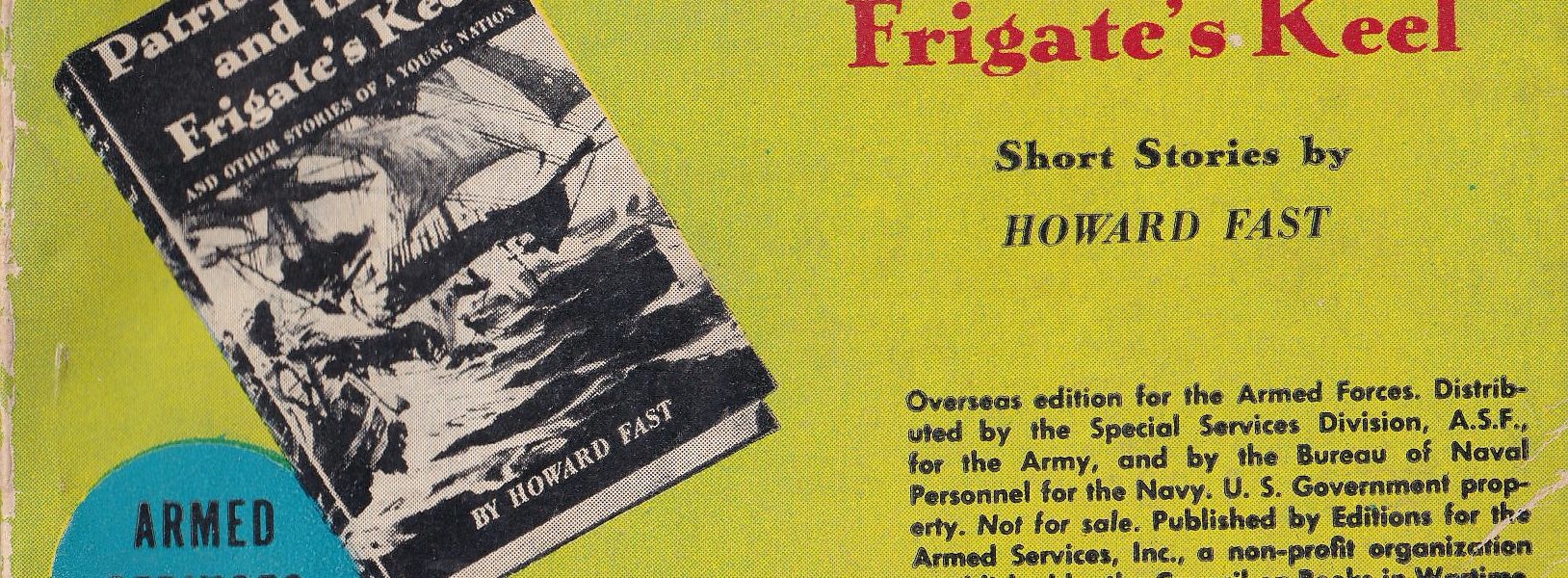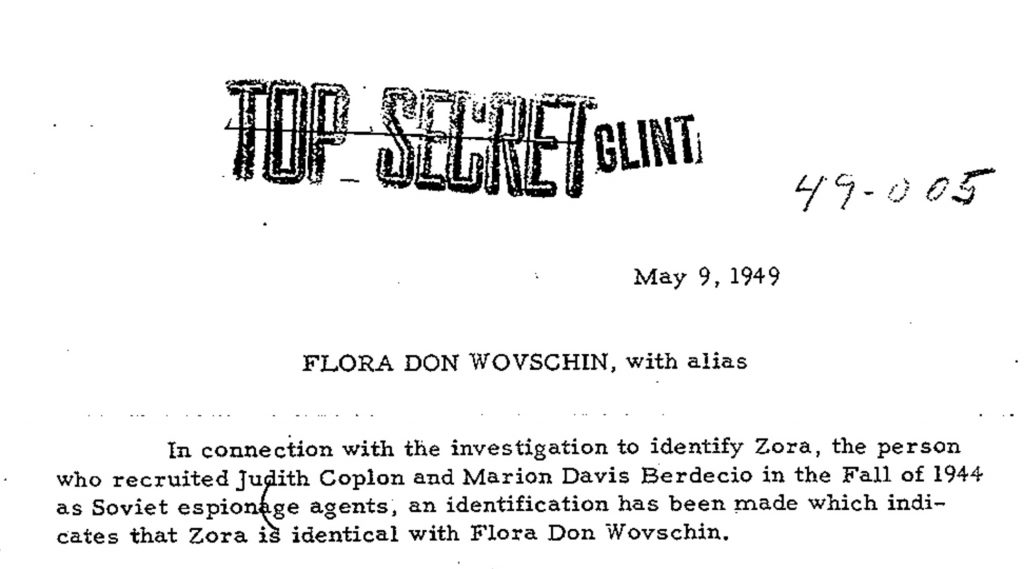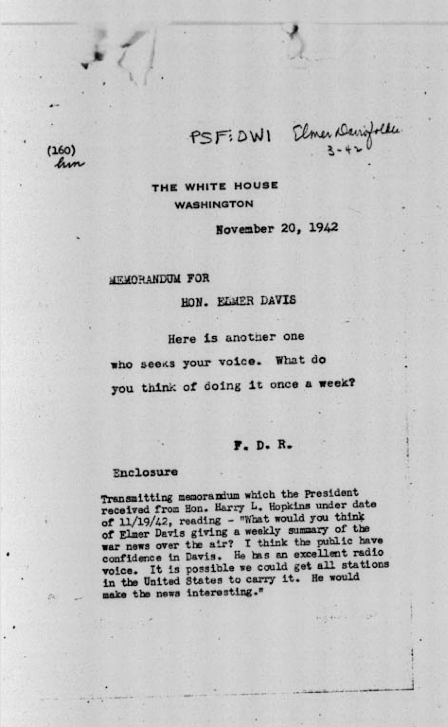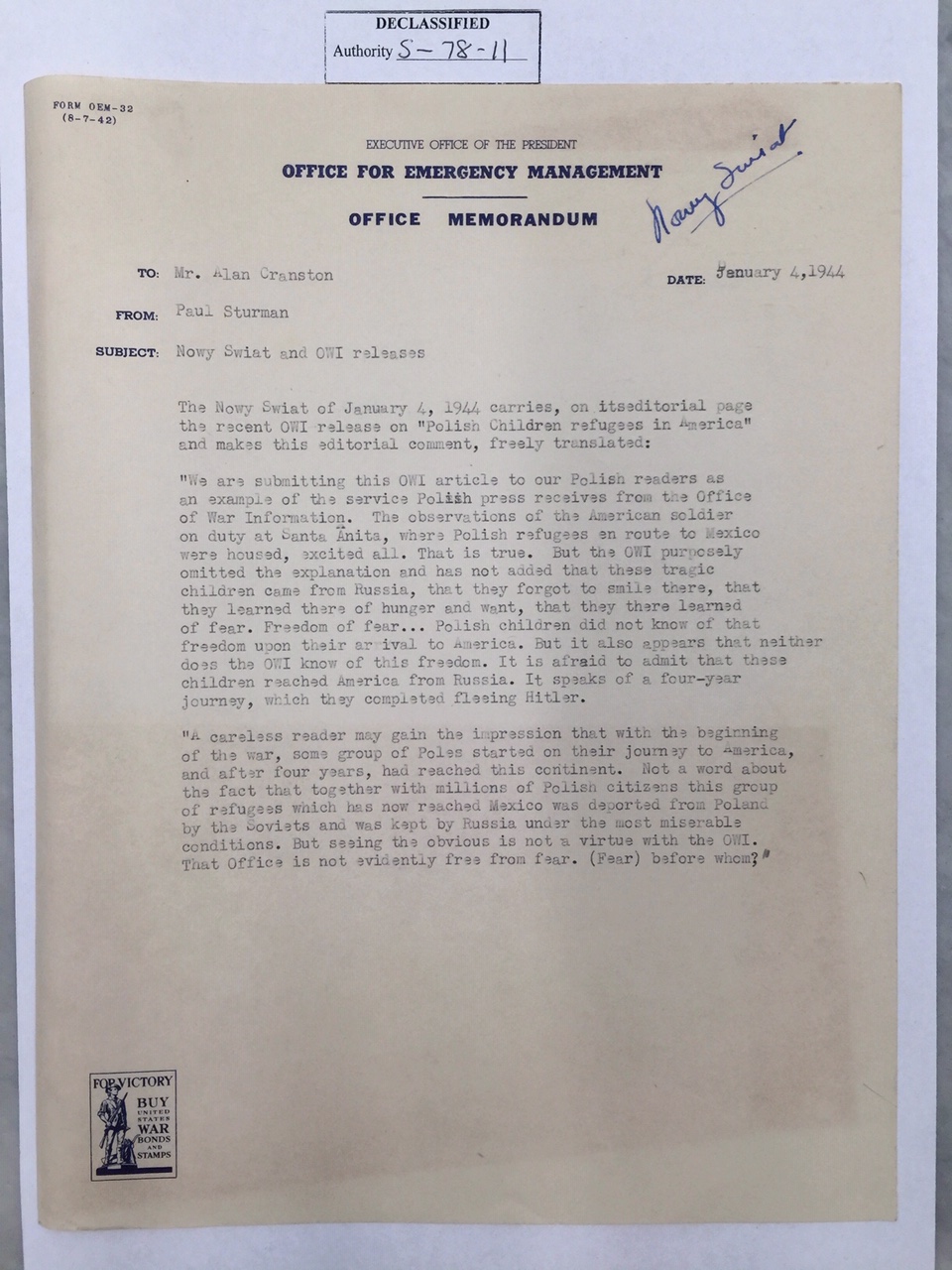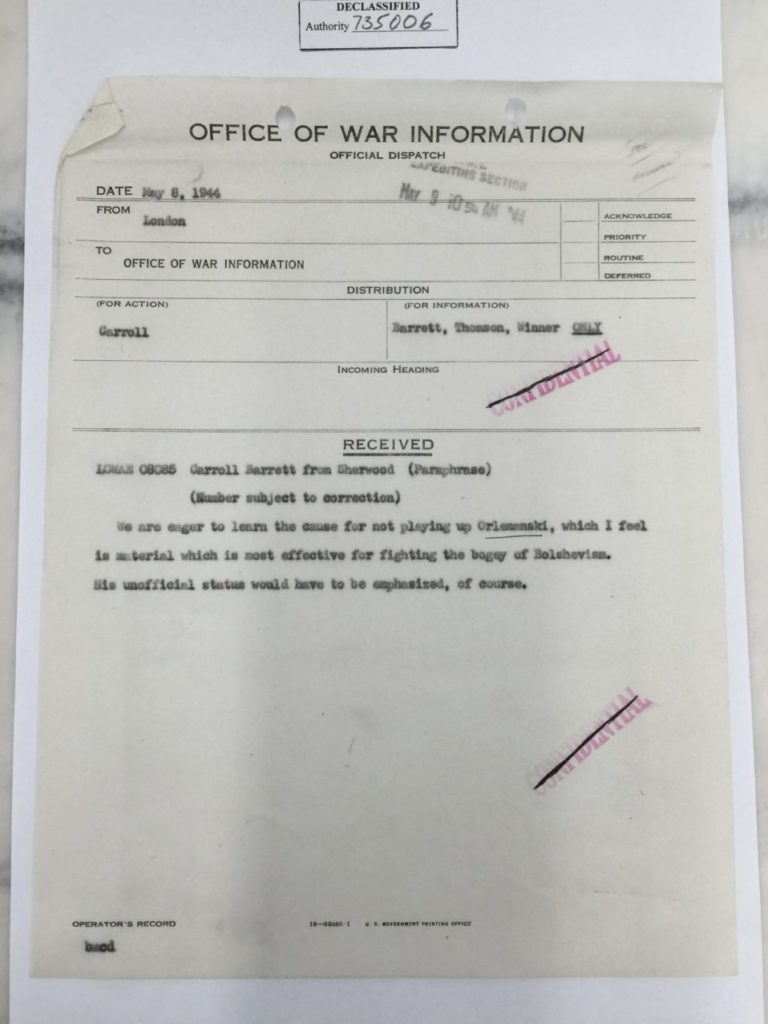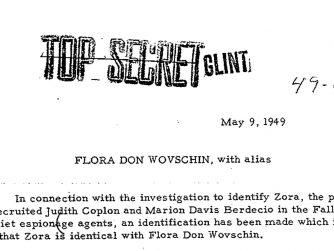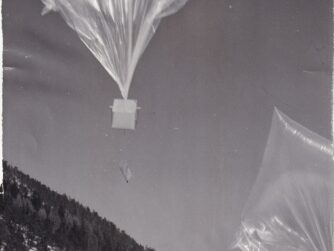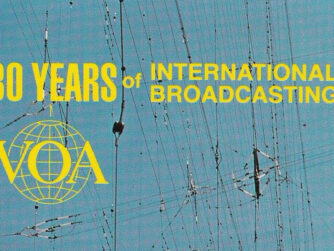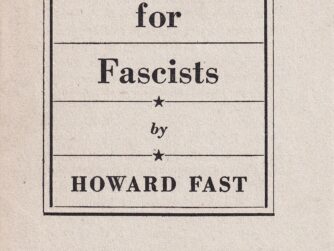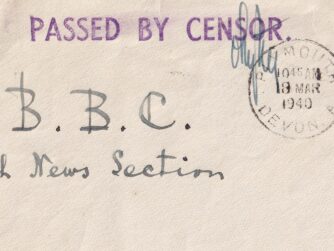Stalin Peace Prize laureate Howard Fast has been erased from the history of the Voice of America, but an honest analysis of his Soviet agent of influence role as the station’s first World War II news chief could help VOA confront propaganda and disinformation today from Russian President Vladimir Putin’s state media and intelligence services. Fast is also still waiting to be included among VOA’s famous authors, most of them, unlike him, opponents of Communism.
By Ted Lipien
No one can learn from history that is being falsified and hidden.
When asked whether he knew that American novelist Howard Fast, the first Voice of America (VOA) chief news writer and editor, became a Communist Party USA activist and received the 1953 Stalin Peace Prize, Sanford Ungar, former VOA Director who served during the Clinton administration and is now the Director of the Free Speech Project at Georgetown University, said in an online panel discussion in February 2022 that this was a “McCarthyite question.”
His remark did not stifle the discussion, in which Ungar later mentioned a New York Times reporter and a Pulitzer Prize winner, Walter Duranty. The latter, among the Western journalists in Russia, was the most famous denier of Stalin’s crimes, including the Holodomor deaths of several million Ukrainians from forced starvation. Ungar also somewhat reluctantly agreed that Fast’s communist ties were true, adding that Fast was duped by the Soviets and later broke with Communism. But, in addition to Fast, there were many other Walter Durantys at the Voice of America in its early years, some in more senior and many in lower-level broadcasting positions – one of many embarrassing facts the organization’s management has tried to hide for decades.
Ungar argued that Fast was later repentant over his support for Stalinist Russia, but, in reality, he was not. Although Fast publicly announced on February 4, 1957, that he had left the Communist Party, he never admitted that his advocacy in VOA programs for Soviet influence in Eastern Europe under Stalin did anyone in Eastern Europe and elsewhere any harm. He did not apologize for censoring news at the Voice of America or for his pro-Kremlin propaganda in the later period in his articles written even after Stalin’s death when Fast worked for the party’s newspaper, the Daily Worker. In his 1957 book, The Naked God, in which he announced his break with the Communist Party, Fast condemned mainly the party apparatus. He also condemned Stalin and his crimes, but he did not denounce Marxism or Communism as inhuman and violent ideologies — something many other disillusioned Communists did. Fast mentioned the Voice of America briefly in The Naked God but not in connection with his wartime VOA work, which he did not reveal in the book. He included much more information about his work for VOA but only later, in his memoir, Being Red, published in 1990.
The mention of the Voice of America in The Naked God was inconsequential. In a 1957 letter to his friend, Soviet writer Boris Polevoy, the head of the Union of Soviet Writers, which was reprinted in the book, Fast commented in response to Polevoy’s complaint that his decision to leave the Communist Party USA was being exploited in Voice of America broadcasts to the Soviet Union. Since few historical VOA transcripts and recordings have been preserved, I could not confirm whether VOA admitted in 1957 that Fast had been VOA’s chief news writer and editor during World War II. Fast’s comments in his letter to Polevoy about VOA’s role during the Cold War were condescending, as they were also in his later memoir Being Red.
It’s neither important nor significant that the Voice of America makes capital of my action. I assure you they made much greater capital of Khrushchev’s “secret speech,” and one cannot silence any and all criticism with the protest that the Voice of America will use it.1
Fast’s instinctive dismissal of the potential impact of the Voice of America’s reporting about his break with the Communist Party was somewhat disingenuous because, unlike the time when he was the VOA chief news editor and writer during the war with Nazi Germany, in 1957 VOA did have an audience in Russia and did report to some extent in Russian on the criticism of the Soviet Union, although not nearly as much as Radio Liberty and Radio Free Europe. Fast admitted, but much later in Being Red, that while he wrote and edited VOA English news, he censored information that could have exposed Stalin as a mass murderer at the head of the Soviet imperialist state bent on bringing other nations under Russia’s control. He did not put it in these words but claimed that he then viewed such information as merely anti-Soviet propaganda and refused to use it. He did not seem to be bothered by these actions.
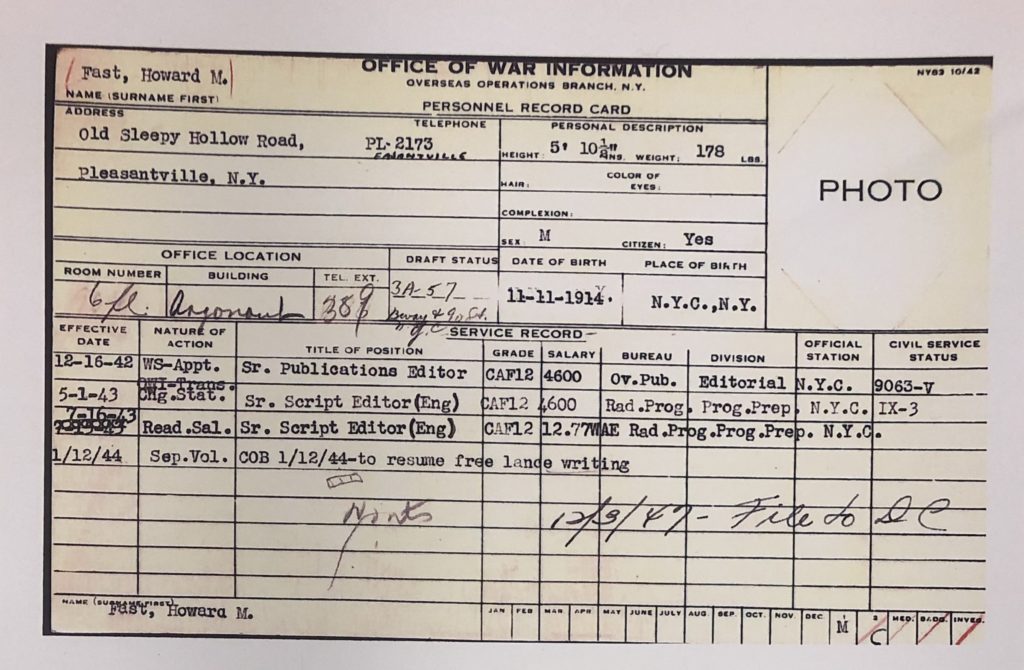
Former Voice of America Director Sanford Ungar likewise did not seem to think that Fast did anything wrong in his Voice of America news job during the war. He also believed that Fast’s support for Communism developed only after he resigned from VOA. Furthermore, Ungar said that there was nothing to suspect there were communist agents at the Voice of America. He was mistaken on all three points.
As a Professor of History at Emory University, Harvey Klehr, and a Library of Congress historian, John Earl Haynes, showed in their book, Venona: Decoding Soviet Espionage in America (Yale University Press, 2000), secret Soviet intelligence messages monitored by the U.S. counterintelligence services as part of the Venona project contained “the unidentified cover names of several Soviet espionage contacts in the Office of War Information,” including one in the OWI French section.2 The Office of War Information was the wartime government agency in charge of the Voice of America language services and broadcasts from 1942 to 1945. They were part of the OWI’s Overseas Operations Branch in New York City.
The Venona cables show that the KGB used an agent, codename “Philosopher” (OWI French section), for “providing background information and character appraisals – of OWI personnel.” The Venona project also revealed Flora Don Wovschin (codename “ZORA”), born in 1923 in the United States to Russian immigrant parents, as the most active Soviet agent in the Office of War Information, where she worked in New York as a research assistant and librarian during World War II in the Overseas Branch producing Voice of America broadcasts.
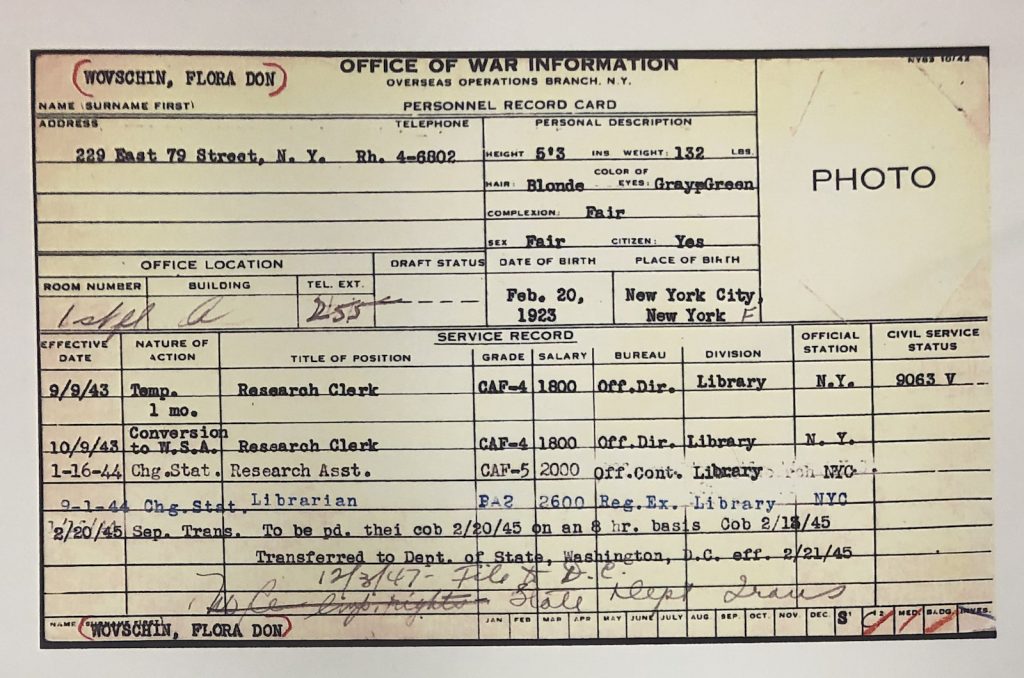
Flora Wovschin may have been the most active Soviet spy at the Office of War Information and the Voice of America, but she was not the most important Soviet agent of influence. The Kremlin’s most important agents of influence, although not necessarily the recruited ones, were some of the top OWI and VOA leaders and editors like Howard Fast, although Wovschin may have been able to influence them through her programming research. Wovschin recruited at least two or three other agents outside the OWI, including a Barnard College fellow graduate, Judith Coplon, who became a valuable KGB asset. Coplon started working in the US Department of Justice and transferred to the Foreign Agents Registration section, where she had access to U.S. counter-intelligence information, which she passed to her Soviet handler Valentin Gubitchev, a KGB official employed by the United Nations. FBI arrested her in March 1949 while she was carrying what she believed to be secret U.S. government documents. FBI had placed them in her office, hoping that she would try to give them to Gubitchev. She was convicted in two separate trials and sentenced to ten years, but her convictions were overturned on appeal because FBI agents had lied under oath about their electronic surveillance of the accused. The appellate court in New York concluded, however, that she was guilty. The conclusive evidence about her, Flora Wovschin, and Marion Davis found in the Venona cables was not presented at Judith Coplon’s trial because of its highly classified nature. While Flora Wovschin herself did not produce especially useful intelligence for the Soviet Union while she worked at the Office of War Information and the State Department, her recruitment of Judith Coplon gave the Russians access to highly valuable U.S. counter-intelligence secrets.
At first, Wovschin continued to impress the KGB with her productivity, but later the headquarters in Moscow concluded that she was becoming careless, violated KGB security rules, and was initiating too many risky contacts. At one point, the KGB threatened to break contact with her if she did not curtail her spy recruiting activities.
Flora Wovschin’s immigrant family seemed to be well off financially in America. Her father, Dr. William A. Wovschin, was a captain in the U.S. Army during World War I. Both her mother, Maria Wicher (cover name DASHA), and her stepfather, Enos Regnert Wicher (cover name KEEN), were Communist Party USA activists and appear in deciphered Venona messages as KGB contacts. Enos Wicher, who worked for the Wave Propagation Group of Columbia University’s Division of War Research, provided information on American military electronics.3
Flora Wovschin graduated from Barnard College and also studied at the University of Wisconsin School of Journalism. She is listed as WOVSCHIN, FLORA RHODA” in the Barnard College Mortarboard 1942 Senior Yearbook roster on page 190, and on page 160 as a member of the French Club. In February 1941, when Stalin and Hitler were still allies, she strongly opposed U.S. aid to Britain, following closely the Soviet and Communist Party USA propaganda line at that time. The Barnard Bulletin student newspaper issue of February 21, 1941, four months before Germany’s sudden attack on its former Soviet ally, quotes her as saying in a student debate that President Roosevelt’s Lend-Lease Bill to allow the transfer of U.S. arms to Great Britain has the support of American “warmongers.”
Flora Wovschin claimed that Hitler’s plan of “presenting a lie so monstrous that the people are confused” in attempting to propagandize a false doctrine, is being used by warmongers in the U.S. today. She dismissed as absurd the slogan popularized by press and radio that “Aid to Britain is the way to keep America out of war.” The Lease-Lend Bill (sic), said the speaker, has the support of crooked political machines and industrialists, such as munitions makers, who have profited enormously by the war so far.4
Interestingly, some of the positions taken by the American Student Union, which Flora Woschin represented at the debate, with the exception at that time concerning support for Britain, were quite similar to the Office of War Information pro-Soviet propaganda in the later phases of the war. The article said that the ASU “proposes the cooperation of this country with existing non-belligerents, the strongest of whom is the Soviet Union, towards the strengthening of democracy and the promotion of the ‘people’s peace’ and the setting up of ‘people’s governments’ in the nation’s now at war.” The Lend-Lease Act was enacted on March 11, 1941, and eventually benefitted the Soviet Union after Germany attacked its former Soviet ally on June 22, 1941. Nazi Germany’s attack on the Soviet Union led to an immediate change in the Soviet and Communist Party USA propaganda line about U.S. aid to Britain and to Russia.
In 1942, Flora Wovschin was elected president of the newly formed Social Science Club at her college. The October 1, 1942 issue of Barnard Bulletin student newspaper has her front-page article about an interview she conducted with a Soviet student leader, Nikolai Krasavchenko, who was invited to visit the United States. The article is titled, “Soviet Student Leader Describes His Country’s War Against Nazism: Nikolai Krasavchenko, interviewed by Bulletin, Tells of Nazi Horrors, Studen Heroism.”5
The Barnard College Alumnae Magazine reported in October 1944 that “Flora Wovschin works with the O.W.I. in the Overseas Branch in New York. She is in the research section….” The March 1956 Barnard College Alumnae Magazine reports her as “Lost,” whereabouts unknown. In 1984, the Class of ’43 editor was still seeking information about Flora Wovschin.
Wovschin’s Office of War Information records, stored at the National Personnel Records Center of the National Archives in St. Louis, MO., show that she “wrote research reports for the various units of OWI Overseas Branch, for Basic News, Military Desk, Publications, etc.” They included: “Background on the Curzon Line; The Hungarian-Rumanian Controversy Over Transylvania; Economic and Political Background on East Prussia; Political and Diplomatic Background on the German Invasions of Holland, Belgium, France, Norway, Poland; Reports on Bulgarian, Rumanian, Hungarian; Military and Economic aid to Germany.”
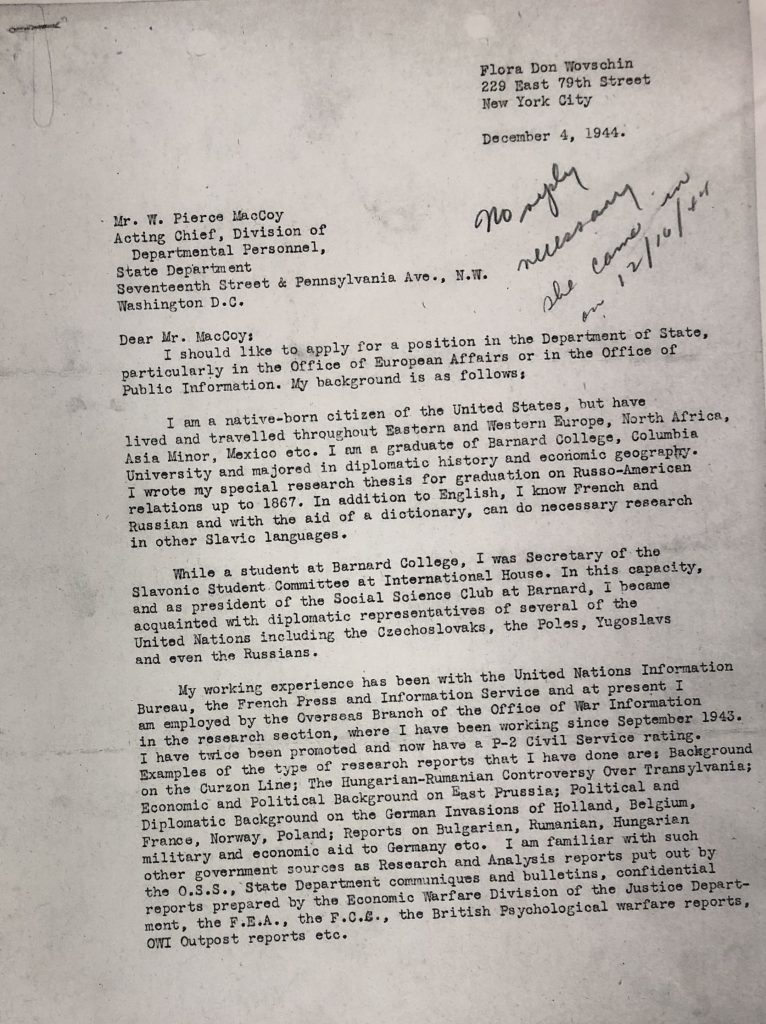
She was fluent in French, spoke Russian, and could use any of the Slavic languages. In 1945, she transferred from the OWI to the State Department, where she worked in the International Information Division as a divisional assistant until September 1945. According to a Venona cable dated “28 March 1945,” she was given by another Soviet spy within the U.S. government “the task of trying to get in the RADIO STATION [RATsIYa] about Swiss-German financial operations.” “RATsIYa” was the code name for the Office of War Information, including the Voice of America.
Haynes and Klehr wrote in their Venona book that when, after the war, the FBI started efforts to identify who was the spy at the Office of War Information and to find her, Wovschin fled in 1946 or 1947 to the Soviet Union, where she renounced her American citizenship and married a Russian engineer. The FBI received information that Wovschin later had gone to North Korea to work as a nurse and had died there.6
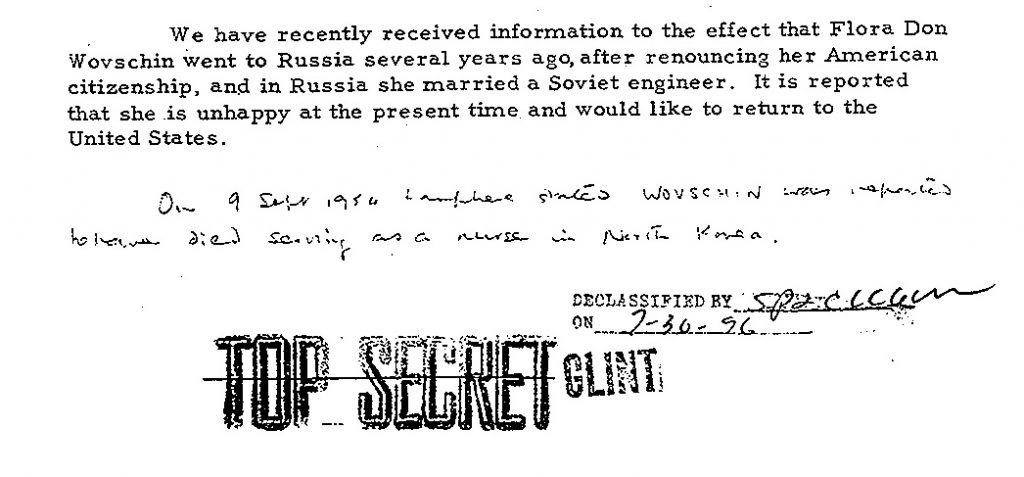
Declassified FBI documents in the investigation of Judith Coplon contain more detailed and slightly different information about Flora Wovschin’s personal life and her departure to the Soviet Union than what Haynes and Klehr included in their Venona book. When they wrote their book, the FBI’s file on Judith Coplon was still classified. The additional information came from the FBI’s interview with Wovschin’s friend, Marion Davis Berdecio, whom Wovschin also had recruited to be a Soviet agent. During World War II, Marion Davis worked for the Office of the Coordinator of Inter-American Affairs (CIAA), which was in charge of radio broadcasting and other information outreach to Latin America. President Roosevelt did not give the Office of War Information and its Voice of America radio operation to target Latin America. FDR kept information outreach to Latin America in the CIAA headed by his appointee Nelson Rockefeller.
The Venona project cables confirm Marion Davis Berdecio’s recruitment by Flora Wovschin to be a Soviet spy. Berdecio told the FBI in 1957 that “WOVSCHIN’s mother had told her that she had received a death certificate from the USSR attesting that FLORA DON WQVSCHIN had died of pneumonia in Vladivostok. Davis Berdecio confirmed to the FBI that “FLORA DON WOVSCHIN was her best friend during their school days.”7 They both attended Fieldston High School, Barnard College, and the University·of Wisconsin.
Even more detailed information came from Wovschin’s mother, Maria Wicher, who told the FBI that her daughter was married in 1946 to Nikolai Karpekov, an employee of the Amtorg Trading Corporation in New York City which facilitated trade between the United States and the Soviet Union and provided cover for Soviet spies. Wicher stated that a Russian official performed the marriage at the Soviet Consulate in New York City and the couple sailed for Russia on July 19, 1946.8
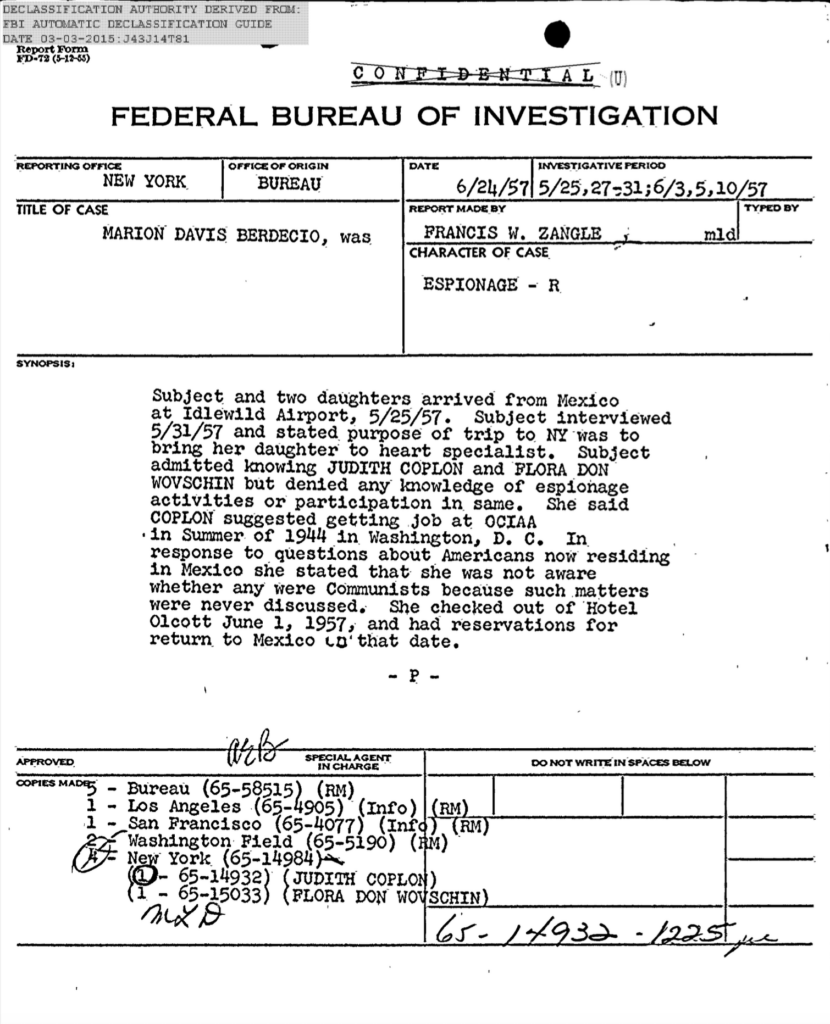
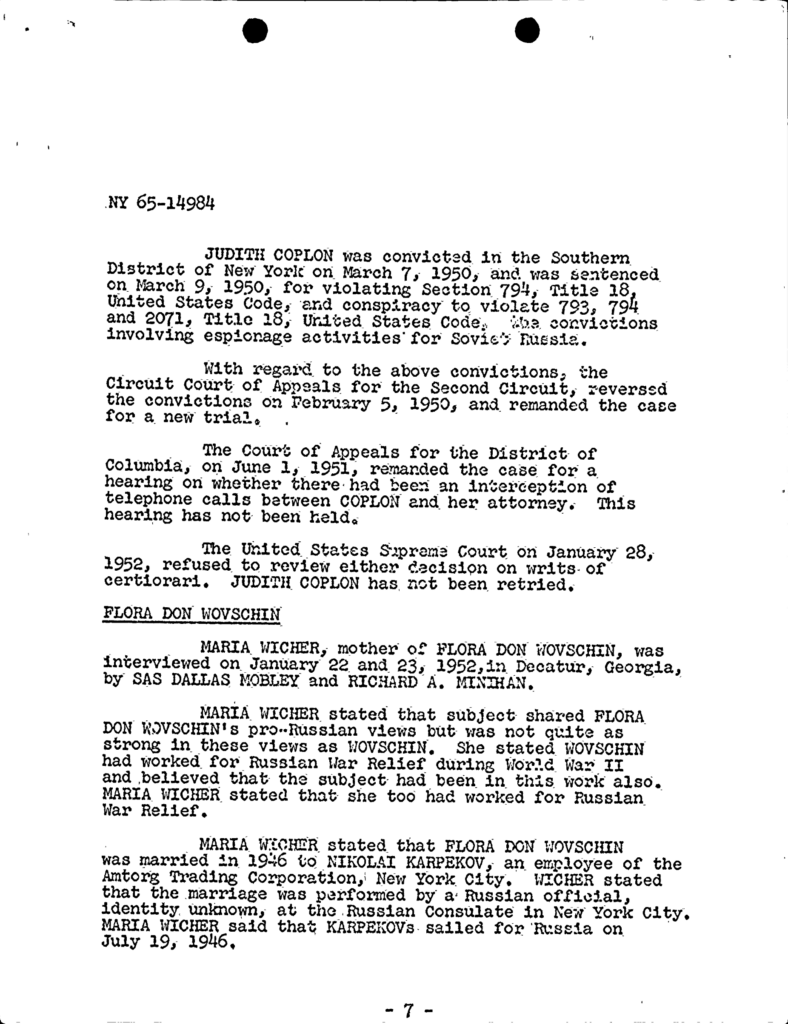
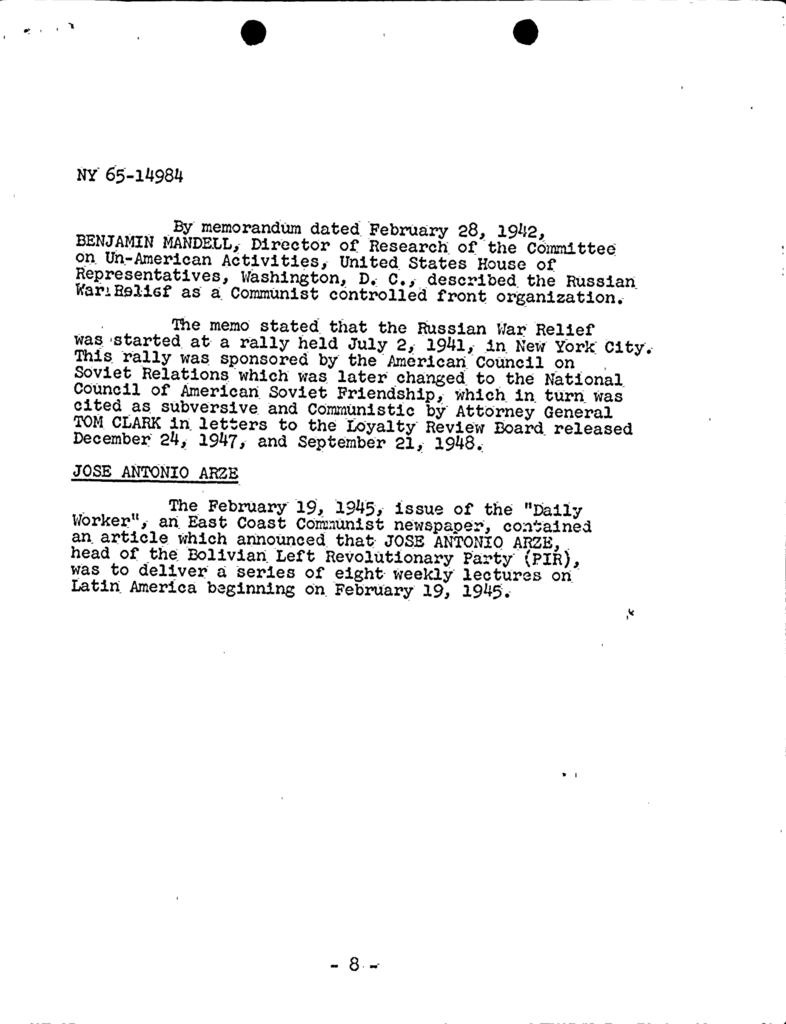
A message to Moscow from Communist Party USA leaders marked “TOP SECRET” – Document 74 – found by Western scholars in the Soviet archives in the 1990s, leaves no doubt that the Soviet intelligence service also had other spies in the information departments of the Office of Strategic Services (OSS), which later became the Office of War Information and employed Flora Don Wovschin in the library and research department serving the OWI staff in New York, including Voice of America officials and programmers. The Soviet spies listed in the document found in the Soviet archives worked in the Voice of America foreign language services during World War II.
Document 74
Ryan to Dimitrov, enclosed in Fitin to Dimitrov, 1 June 1942, RTsKhIDNI 495-74-484. Original in Russian. TOP SECRET…
We are in contact with the department of foreign propaganda and with the information coordinator of the US. That department is one of the three departments in the so-called Donovan Committee and is directly controlled by the White House. We also have several persons working in the Czech and Italian radio-broadcast sections, although not in the overall program. We consider it expedient to prolong that contact and keep these persons in the radio-broadcast section, if, of course, you are in agreement.9
Ryan was Eugene Dennis, a Comintern agent in the United States who became general secretary of the Communist Party USA in 1945 and led the party until 1959. Pavel Mikhailovich Fitin was the head of the foreign intelligence directorate of the NKVD from 1940 to 1946. Georgi Dimitrov, a Bulgarian Communist, was the head of the Comintern until its dissolution in 1943.
Another document in the Comintern archives, a year-end report on the 1942 Communist Party activities and financing of an espionage network refers to another agent, Saito, “hired by the O.W.I. (Office of War Information) which is the government department of propaganda which among other functions prepares radio broadcasts to Japan and similar propaganda materials for Axis countries and occupied countries.” The Communist Party USA report to Moscow also stated that “There are reliable Chinese comrades and others who have been invited by O.W.I. for such work.”10
However, what the KGB and intelligence services of other communist nations wanted at VOA were not necessarily spies but witting or unwitting agents of influence. Soviet agents of influence at the OWI and the Voice of America during the war were far more numerous and much more valuable to the Kremlin than actual intelligence operatives. Some of the agents of influence occupied the most senior management positions, made critical programming decisions, and had access to President Roosevelt and other top U.S. government officials. A few of them were known to have had frequent contact with individuals who were later identified as active Soviet spies or important agents of influence outside of the OWI and the Voice of America. It was through them that the Soviet intelligence services were able to convince President Roosevelt and some pro-Soviet State Department diplomats that Stalin had become a friend of democracy and would respect the rights of religious believers. As Julius Epstein, a former OWI German desk editor, and internationally-published journalist who escaped from Nazi Europe wrote in 1950, the Voice of America was engaged in promoting “Love for Stalin.”
There are still too many of the old OWI [Office of War Information] employees working for the Voice, both in this country and overseas. I mean those writers, translators and broadcasters who so wholeheartedly and enthusiastically tried for many years to create ‘love for Stalin,’ when this was the official policy of our ill-advised wartime Government and of our military government in Germany. There is no doubt that all those employees were at that time deeply convinced of the absolute correctness of that pro-Stalinist propaganda. How can we expect them to do the exact opposite now?11
Epstein, who was sympathetic to Communism in his youth and briefly joined the Communist Party in Germany before becoming an anti-communist, realized that extreme pro-Stalin propagandists were an influential group in the U.S. agency that started producing Voice of America broadcasts.
When I, in 1942, entered the services of what was then the “Coordinator of Information,” which became after a few months the O.W.I., I was immediately struck by the fact that the German desk was almost completely seized by extreme left-wingers who indulged in a purely and exaggerated pro-Stalinist propaganda.12
Epstein, a Jewish refugee in America with liberal, pro-socialist views who escaped the Holocaust and published anti-Nazi articles in European and American newspapers and magazines, hardly fit the description of a white supremacist critic of U.S. government broadcasts.
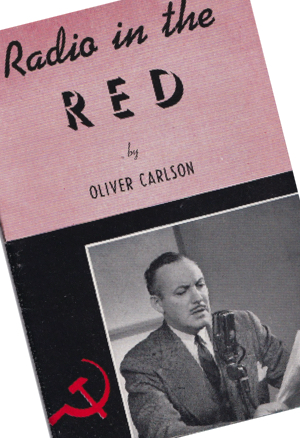
Another ex-Communist who turned anti-communist and exposed Soviet influence at the Office of War Information was Oliver Carlson, an American writer, journalist, founder of the Young Communist League of America, and lecturer at the University of Chicago. His description of pro-Soviet propaganda by the OWI was similar to Julius Epstein’s observations.
During the War Years — and largely with government blessing — the Communists moved en masse on the radio, as they did on the movies and the press to help “sell” the American people on the virtues of our Soviet ally. The idea officially projected through such organizations as the O.W.I., was to cure “misunderstanding” of Soviet Russia, which was suddenly discovered to be a “democracy” and a noble social experiment.13
Carlson knew that the Office of War Information produced such propaganda not only for overseas audiences through the Voice of America but also for domestic audiences in the United States until Congress eliminated most of its domestic propaganda budget in 1943. Carlson wrote about domestic OWI propaganda programs, which were essentially the same as VOA programs.
Tens of millions of radio listeners were deluged with streamlined and dramatic presentations to prove that any talk of Russia as a ruthless dictatorship was a “reactionary plot, The Bolshevik regime, it turned out, was just a Russian version of our own War for Independence, Lenin a Russian replica of George Washington, Stalin a compendium of Jefferson, Jackson and Lincoln.14
Carlson noted, however, in his 1947 pamphlet, Radio in the Red, published by the Catholic Information Society, that “such crude propaganda, now that the war is over, has declined.”15 After the war, when the number of Soviet agents of influence at the Voice of America indeed greatly diminished, a communist spy, Zbigniew Brydak, aka Stefan Michalski, got a job at the VOA bureau in Munich in the early 1950s before going back to Poland and launching attacks on VOA and Radio Free Europe and their new anti-communist broadcasters.
Brydak was a particularly dangerous agent provocateur. Before he arrived in the West, he entrapped and denounced to the communist secret police young members of the pre-war Polish scouting movement and its wartime underground anti-Nazi resistance units. According to my former VOA Polish Service deputy chief, Marek Walicki, who knew Brydak, some of these young men may have been tortured and executed as a result of Brydak’s denunciations.16
By the time Brydak appeared in the West, the Voice of America was already reformed, its Soviet sympathizers dismissed, and a newly hired group of refugee journalists engaged in countering Soviet propaganda as part of President Truman’s “Campaign of Truth.”17 One of the most important initiatives of his presidency was the launching of Radio Free Europe (RFE). Brydak tried to get a job at RFE but was rebuffed. RFE, and Radio Liberty (RL), which broadcast to the Soviet Union, had in later years several communist agents working for them, usually in minor positions without significant editorial influence. Communist regimes perceived the two stations as much more dangerous for their grip on power and concentrated their spying activities on them rather than on VOA.18
Panel Discussion on February 3, 2022, to Commemorate the 80th Anniversary of VOA’s First Broadcast in February 1942 — Full YouTube Video of “Voice of America: Recognizing 80 Years – and Counting – of Independent Journalism.”
Voice of America Moderator Ndimyake Mwakalyelye: Professor Ungar, did you know that the first chief VOA news writer and editor was Howard Fast, who in 1953 received the Stalin Peace Prize and was the Communist Party activist and journalist? Do you want to weigh in on that
Former VOA Director Sanford Ungar: Well, I’ve heard this before.…I suppose it’s true if somebody has checked this out. There were people…this is the kind of McCarthyite question if you ask me. Should we discredit someone retroactively because of something that he did at another time in his career? He was not a communist agent in the Voice of America and there was nothing to suspect there were communist agents there. He went on to do some other things. He was…his political views moved in a certain direction. There are people…if we go that route, there are people available to be investigated now who have done things in terms of white supremacy and terrorism in this country who would not necessarily survive some of that investigation, especially because of some of the things that happened in the last administration. So, I mean it might amuse someone to say that someone who worked at VOA in the 40s and the 50s later won the Stalin Peace Prize. Well, maybe they had bad judgment in giving him the Stalin Peace Prize.19
Many who had lived under Communism would probably have a different view than Prof. Ungar as to what may or may not amusing about a communist Voice of America news editor. VOA wartime broadcasts carried Soviet propaganda lies that any listener who had experienced life, imprisonment, and forced labor in the Gulag camps would find misleading and offensive. Successive Voice of America managers hid these failings from their employees and the American public. In the same panel discussion, current VOA Acting Director Yolanda Lopez repeated what has been the management’s official line for many decades: “In many lands, at many times, we have heard people say, ‘I hear it on VOA, so it must be true.”
As you know, this agency was launched in the depths of World War II on the premises that honest, reliable reporting was more powerful weapon than propaganda and that its independence from government interference was the key to its credibility. Congress has underscored that independence with legislation at various times and VOA journalists have risen up to resist every attempt to infringe on it over the years. In many lands, at many times, we have heard people say, ‘I hear it on VOA, so it must be true.’20
VOA journalism during World War II was hardly independent or free from propaganda. John Houseman, later somewhat erroneously declared to be the first VOA Director, was hired to produce the first radio programs because of his experience in radio propaganda using fake news for dramatic effect. It is true that in its anti-Nazi and anti-Japanese broadcasts, VOA did not include outright lies. Instead, it did not always tell the whole truth. Soviet propaganda lies, however, were repeated by VOA, either knowingly or out of inexcusable ignorance.
Houseman was very proud of his expertise in employing propaganda and psychological warfare techniques in VOA broadcasts — something he repeatedly stressed in his memoirs. In his book, Unfinished Business, he wrote: “Psychological warfare could not furnish me with the theater’s climaxes…; there was no applause for the Voice of America….”21 He was a skillful propagandist who later became an Oscar-winning Hollywood actor.
What brought Houseman to the attention of the U.S. government was his prior work in theatre and radio drama productions but not journalism or news reporting, in which he had no experience. Together with Orson Welles, Houseman was responsible for the 1938 radio show, ’ The War of the Worlds, which mixed genuinely sounding but fake evening radio news bulletins with dramatic descriptions of an alien invasion.22 After the show created panic among some listeners, AP reported on it with a somewhat sensational headline: “U.S. Investigates Radio Terror.”23
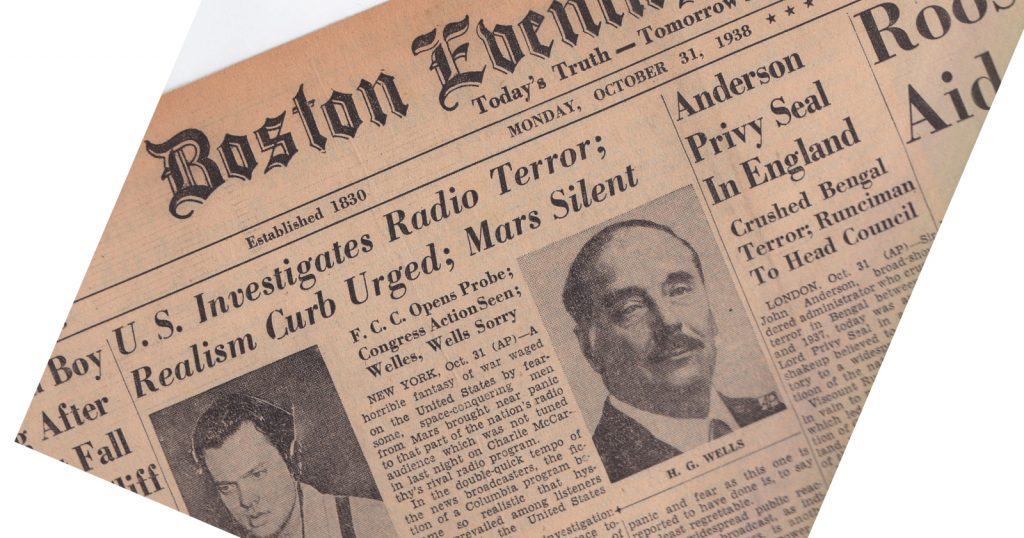
Houseman was also responsible for hiring Communists for VOA jobs and was Howard Fast’s primary patron and mentor. Fast thought highly of his boss and wrote in Being Red: “Through all my months at the OWI, Jack Houseman maintained an avuncular attitude toward me.”24

The only false claim in the State Department memo in support of accusations against John Houseman was that Native Son, a book by an African American writer Richard Wright, which Houseman had co-produced as a play before he started working for the U.S. government, was somehow “possibly subversive in intent and un-American.” Wright’s book was not subversive or un-American. His book, which Houseman produced as a Broadway play, was about racism in America. Wright left the Communist Party in 1942 and became an ardent anti-communist. In his essay in the 1949 book, The God That Failed, Wright wrote that two white Communists assaulted him at a May Day march in Chicago in 1936. After he announced his intention to leave the Party, Communists called him “a traitor.”25 Interestingly, Howard Fast chose to title his book, The Naked God, because, unlike former Communists and former Soviet sympathizers who published their essays in The God That Failed – Louis Fischer, André Gide, Arthur Koestler, Ignazio Silone, Stephen Spender, and Richard Wright – Fast did not make a complete break with Communism’s violent ideology.
Government interference was not the only problem VOA faced in its early years — the selection of leaders and journalists of the same political persuasion based on their ideology and activism created an environment conducive to much more propaganda, censorship, and self-censorship than any directives from the White House or the State Department. This was true during most of VOA’s existence and remains true now.
There were many times during World War II and for a few years after the war when Voice of America leaders and journalists resorted to censorship, used half-truths, or repeated Soviet lies before VOA started to change in the late 1940s and the early 1950s under President Truman. Editors and reporters blinded by ideology and influenced by disinformation became, on their own, eager advocates for Soviet Russia, Communism, or radical socialism. In response to such activism, members of Congress repeatedly protested over the years against left-leaning partisanship, biased, pro-Soviet reporting by VOA, and against censorship to protect good relations with Moscow. In most cases, the protests came from Republicans and Democrats who were considered moderate and did not engage in McCarthy-like demagoguery.
Democrats and Republicans in Congress called VOA programs at various times “Baloney,” “Lies,” “Insults,” “Drivel,” “Nonsense,” “Falsehoods,” and “Downright Tragedy”26 or “Uninteresting,” Drab,” “Bureaucratic in Tone,” and “Unconvincing.,” or “About As Hard Hitting As A Creampuff.”27 Lawmakers condemned the censorship of the 1950 VOA program with a survivor of the Soviet Katyn massacre, Polish military officer, writer and artist, Józef Czapski28, and the VOA censorship and banning of the Russian Nobel Prize dissident writer Alexandr Solzhenitsyn in the 1970s.29 When Congress passed the VOA Charter in 1976, it was not only to eliminate government interference but also to prevent VOA journalists from engaging in biased, partisan-driven reporting or biased reporting in favor of foreign governments and interests.
News censorship to shield Stalin and Soviet Russia from criticism was the strongest during World War II when Howard Fast worked as VOA’s first chief news writer and editor. It continued for several years after he resigned from his VOA job. As one Polish refugee journalist, Czesław Straszewicz, who during the war produced in Britain radio broadcasts to Nazi-occupied Poland, recalled after the war:
With genuine horror we listened to the Polish language programs of the Voice of America (or whatever name they had then), in which in line with what [the Soviet news agency] TASS was communicating, the [1944] Warsaw Uprising was being completely ignored.30
Wartime VOA journalists did not protest against government interference unless they thought that the Roosevelt White House or the State Department were trying to restrict their pro-Kremlin reporting, which they did on very few occasions. Otherwise, the VOA leadership and editors willingly broadcast what they thought President Roosevelt wanted and, in some cases, were more pro-Soviet and pro-communist than even the White House would tolerate. Nearly all were hired based on their left-wing ideological leanings and their solid partisan support for the FDR administration. Many were pro-Soviet communist sympathizers, several were Communist Party members, and a few had contacts with Soviet intelligence or were their recruited agents.
Only one radio journalist, Konstanty Broel Plater, a former Polish diplomat with aristocratic family background, is known to have resigned in protest against the Voice of America broadcasting Soviet propaganda31, and only one Office of War Information editor, Jewish-Austrian refugee Julius Epstein, who in his youth was briefly a Communist in Germany, is known to have alerted his immediate superiors to the problem of VOA repeating Soviet propaganda lies.32 The VOA management, including VOA Director Foy D. Kohler, a State Department diplomat and the future U.S. ambassador to the Soviet Union, later vilified Epstein, when he went public with his charges after the war, calling him “not… best type of new American citizen.33 It has not been uncommon for some past and current VOA executives and journalists to dismiss questions about the organization’s failures by attacking the character of the critics.
In his book Naked God, published in 1957, Fast wrote that he had joined the Communist Party in 1943. If that is true, he was at that time still working for the Voice of America. He also wrote that he first came to the Communist Party “as part of my generation, in the 1930s.” [efn]Fast, The Naked God: The Writer and the Communist Party, p. 7.[/efn_note] Fast did loosen his links with the Communist Party in 1956 and formally left it in 1957. He was still a party member in good standing when he received the Stalin Peace Prize in 1953 and accepted it officially at a ceremony in New York in 1954, a full year after Stalin’s death.
In his memoir, Being Red, published in 1990, Fast described in some detail his work for the Voice of America while it was part of the U.S. government’s Office of War Information. One review of Being Red on Book Verdict said that Fast “passionately” and with “winning personal candor…tells of his lower-class Bronx childhood, World War II work for Voice of America…and activities in the Communist Party, to which he remained doggedly loyal until 1957.34 There were other Communists at the Voice of America who helped to bring Fast into the Communist Party, as he wrote in his memoir.
As for Betty [Fast’s wife] and me, we were drawn into this circle of New York City Communists who made up the Cultural Section of the party through people I met and worked with at the Office of War Information. We were not seduced; we did not have to be.35
Every VOA manager, editor, and reporter should read Being Red and The Naked God, but I doubt that more than very few did, and not one until recently has mentioned Fast’s memoir Being Red in any article or book about the Voice of America. Fast criticized Stalin but only after Soviet leader Nikita Khrushchev, the First Secretary of the Communist Party of the Soviet Union from 1953 to 1964, revealed in 1956 at the 20th Party Congress some of Stalin’s crimes. Never before or after 1956 did Fast outright condemn Marxism, Communism, the Soviet Union, or the Soviet Block regimes. He revealed with disarming honesty in 1957: “Yes, I went to many diplomatic affairs, for my books were then popular in those countries — until the cry of agony made it impossible to go anymore.”36 Still, he did not call for these communist governments to be peacefully replaced. In an analysis in The Nation of Howard Fast’s books and his embrace of a communist utopia, Stanley Meisler, an Associated Press reporter and later a Los Angeles Times foreign and diplomatic correspondent for thirty years, wrote in 1959:
The Naked God, his confession, is extremely disappointing, failing to explain adequately either his reasons for remaining in the party so long or the inner turmoil that led to his disillusion.37
When Fast received his Stalin Peace Prize on April 22, 1954, at the Hotel McAlpin in New York at a ceremony reportedly attended by about 1,000 guests, in his acceptance speech, he praised the Soviet Union as a “monumental force” for peace. As it did during the war, the U.S. State Department again refused to give him a U.S. passport, this time for his private travel to the Soviet Union.
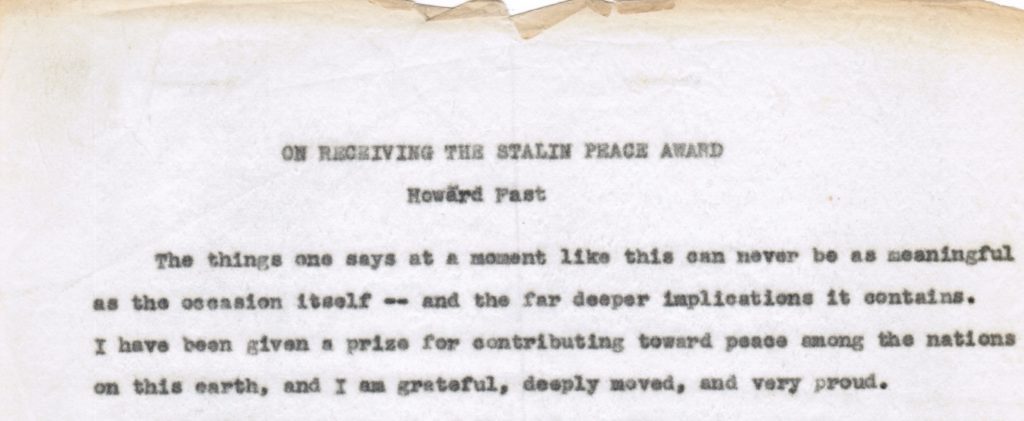
It is a peace prize; nothing can ever change that, and nothing will–and when, even for a moment, the tissue of lies and slander erected between this land of ours and the Soviet Union, is parted, is brushed aside, we see beyond this prize a monumental force for the peace of mankind.38
In his memoir Being Red, Fast expressed no remorse for accepting and keeping the Stalin International Peace Prize which he collected one year after Stalin’s death. Following Nikita Khrushchev’s denunciation of Stalin‘s crimes in 1956 during the Twentieth Party Congress, the prize was renamed the International Lenin Prize for Strengthening Peace Among Peoples. All previous recipients were asked to return their Stalin Prizes, so the renamed Lenin Prize could replace them. It is not known whether Howard Fast exchanged his Stalin Prize, but he did not return it.
The International Committee, headed by [French poet and longtime Communist Party member] Louis Aragon, awarded me the Stalin International Peace Prize. This consisted of a beautiful leather-bound diploma case, a gold medal, and $25,000 [about $235,000 in 2019 dollars], which reversed our slide to poverty. …and considering the hundreds of thousands of my books printed in the Soviet Union, for which no royalties had ever been paid, the $25,000 aroused no guilts for undeserved gratuities.39
It is not entirely clear how much money Fast received with his Stalin Peace Prize. In 1953, the Stalin Prize was split among several recipients, but he may have received the full amount he listed in his memoir. Even after leaving the Communist Party, Howard Fast was largely unrepentant and insisted that while at VOA he knew very little about Stalin and the Soviet Union. “We were a party of the United States,” Fast wrote about the Communist Party USA, failing to mention that for decades the Party’s leadership was receiving instructions and money from Moscow.
As a journalist, Howard Fast was supremely naive and wrong about Communism and the Soviet Union. Still, on domestic U.S. issues, such as persistent racism and anti-labor practices of American corporations, he was on the right side of history. Some of his political activism contributed to a better life for many in the United States. At the same time, his journalistic work at the Voice of America and his later activities on behalf of the Communist Party helped to install and keep in power repressive communist regimes and contributed to the misery of millions imprisoned for decades behind the Iron Curtain. In a 1998 radio interview, Fast described how staff members of the Communist Daily Worker cried when they read Khrushchev’s speech for the first time. It seems, however, that they cried over being duped rather than because they thought they harmed anyone in communist-ruled nations.
“And we heard this speech, and many of us wept. Because we did not know, and would not believe, the truth about the Soviet Union. We had erected a Socialist state to our beliefs and to our dreams, and this for us was the Soviet Union.”40
Fast was, for many years, one of the most admired Americans among Communists in the Soviet Bloc and worldwide. His books were translated in the countries behind the Iron Curtain and had a wide readership in the Soviet Union. He received some royalties from his books (he claimed he did not receive any book royalties from the Soviet Union) and gifts from various communist regimes. In 1949, the Hungarian Embassy delivered to his house a case of the Imperial Tokay wine, made from grapes grown in the garden of Emperor Franz Josef. The same year, the Soviet Embassy sent him two kilos of Beluga caviar and six bottles of vodka.41
Some of Fast’s former Voice of America wartime colleagues, among them Polish Service broadcasters Stefan Arski42 and Mira Złotowska (later Michałowska) and VOA Czechoslovak Service chief Adolf Hoffmeister43, later left the United States and worked as anti-American propagandists, translators, or diplomats for the Moscow-dominated communist parties and their governments and media in Central Europe. Former OWI/VOA Polish editor Mira Michałowska, who, after the war, returned to Poland and married a high-level communist diplomat, translated Fast’s books into Polish. She produced soft propaganda for the communist regime, which she published in the United States and Britain, but she also promoted American literature in Poland, which she translated, and was herself a popular fiction writer. In the late 1950s and the early 1960s, she may have played a role in a Polish intelligence service operation directed against the U.S. Embassy in Warsaw and Radio Free Europe, involving U.S. Ambassador to Poland Jacob Beam and, tangentially, the Voice of America’s famous jazz DJ, Willis Conover.44 The Polish communist government may have allowed Willis Conover to visit Poland in 1959 in the hope that Michałowska would be able to convince American diplomats in Warsaw, including Ambassador Beam, to push for the closing down of the Polish Service of Radio Free Europe. They were willing to tolerate VOA as a much lower threat to the Party’s news monopoly and the regime’s hold on power. Willis Conover, who abhorred the communist regimes, told me in the early 1980s that he knew he was being spied on, but he did not indicate that he was aware of the larger operation of the Polish security services to shut down RFE’s Polish broadcasts.45 The operation was, in any case, unsuccessful, partly because Vice President Nixon was impressed with RFE broadcasts during his 1959 visit to Poland.46 Later, Mira Michałowska and her husband were reported to be in conflict with the regime, possibly because she refused further cooperation with the communist intelligence service. Ambassador Beam and Thomas Donovan, First Secretary of the U.S. Embassy in Warsaw, were under the influence of Mira Michałowska, the wife of a communist ambassador and a former Voice of America editor. Beam and Donovan pushed for ending RFE Polish broadcasts, but their requests were rejected in Washington by the Eisenhower administration.
Thomas Donovan US Embassy Warsaw William E Griffith RFE 1959 Memo 
Fast’s other Polish friend at the Voice of America during World War II, Stefan Arski, aka Artur Salman, was a more primitive propagandist than the sophisticated Mira Michałowska. He left his VOA job under pressure in 1947, joined the Communist Party, and authored virulent propaganda attacks on the United States.
More significant were his contacts with Soviet agents in America. While working for the Office of War Information, Arski was in touch with a key Soviet agent of influence on the question of Poland’s future, a Polish-born naturalized U.S. citizen, Oskar R. Lange who was a professor of economics at the University of Chicago. Lange played an important role in helping Stalin deceive President Roosevelt and other administration officials about his intentions concerning Poland and other countries in East-Central Europe. After the war, Lange renounced his American citizenship and became the first Polish communist ambassador to the U.S.
Arski was also in touch with the Soviet intelligence agent, Bolesław (Bill) Gebert (cover name “ATAMAN”).47 Gebert emigrated to the United States from Poland in 1912, worked as a miner, and 1919 was a founding member of the Communist Party of the USA (CPUSA).48 Gebert appears in nine intercepted NKGB messages between May and October 1944. It was Gebert who, under the supervision of the Soviet intelligence service, helped to organize the trip from the United States to Russia, which Oskar Lange (codename “FRIEND”), and a radical Polish American priest Stanislaus (Stanisław) Orlemanski took in May 1944 to met with Stalin on the Polish question. The Roosevelt administration provided them with passports and military plane transportation from Seattle to Alaska. From there, they flew on Soviet planes to Moscow. After meeting with Orlemanski upon his return from Russia and presumably after reading Lange’s report, which he sent to Secretary of State Hull, President Roosevelt became even more convinced that Stalin genuinely wanted to preserve democracy and religious freedom in Poland. Roosevelt told Stanisław Mikołajczyk, Prime Minister of the Polish Government-in-Exile, whom he received at the White House in June 1944, shortly after the Lange-Orlemanski mission, that Soviet Russia’s attitude toward the Church was changing.49 Knowing that Roosevelt cared about religious freedom, the Soviet intelligence used its Polish communist spy and its agents of influence to dupe him into making drastic concessions to Stalin at the expense of Poland.
Gebert and Lange were in close contact during the war since 1941. Gebert wrote in his memoir published in Poland in 1982 that he and Lange agreed that Poland’s future was closely linked with the Soviet Union.50 Gebert was also in contact with Stefan Arski, who worked as Artur Salman on the OWI’s Polish desk and contributed materials for VOA broadcasts. He also knew Polish-born nuclear scientist, Prof. Ignacy Złotowski, the husband of Mira Złotowska (later Michałowska), who worked with Arski at the OWI in New York. Gebert may have been in contact with her as well. Prof. Złotowski returned to Poland after the war but came back to the United States as a communist diplomat. A defector from the Polish Embassy accused Złotowski of conducting atomic espionage.51 With his KGB mission in the United States accomplished, Bolesław Gebert returned to Poland after the war and served as the Polish People’s Republic Ambassador to Turkey.
While working at VOA, Fast knew both Arski and Mira Złotowska. Fast may not have known that the Soviets were lying about the Katyn massacre, but Arski and Złotowska probably did or at least suspected that Stalin had ordered the mass execution of Polish military officers, government officials, and other prominent Polish citizens, including several hundred Jews. After returning to Poland, Arski specialized in defending the Soviet version of the Katyn massacre and wrote attack articles about anti-communist Polish refugee journalists hired by the Voice of America and Radio Free Europe after the war. Howard Fast never criticized his former Voice of America colleagues who went to work for some of the most repressive communist regimes in Eastern Europe.
Another of Fast’s former work associates at the Voice of America, the wartime VOA Czechoslovak Service chief, Adolf Hoffmeister, became the ambassador to France for the Stalinist regime in Prague, although he was later sidelined by the communist authorities and expelled from the Communist Party.
Former VOA Director Sanford Ungar was, therefore, quite mistaken in his belief that communist agents did not work for the Voice of America. There were both actual Soviet intelligence agents and communist agents of influence at the Voice of America during World War II. Some remained in their VOA jobs for a few years after the end of the war. The Truman administration eventually replaced all of them in the foreign language services with anti-communist refugee journalists who helped to save the Voice of America’s reputation. One of them was the famous Polish anti-Nazi underground radio coder and resistance fighter Zofia Korbońska who started work at VOA in 1948 after escaping with her husband from communist-ruled Poland.52 However, until the start of the Reagan administration, because of the management-imposed restrictions, discrimination against foreign-born employees, and partial censorship before the Reagan years, VOA was never as truthful about Soviet and other communist crimes as the Munich-based Radio Free Europe and Radio Liberty. The legacy of Soviet-Russian influence at the Voice of America during its first years lingered for several decades.
To his credit, however, Ungar appears to be the only former VOA Director who publicly acknowledged Howard Fast’s role in creating the Voice of America. I could find no other references to Fast in any of VOA’s official publications or books about VOA’s history except one in the recently published book, Cold War Radio: The Russian Broadcasts of the Voice of America and Radio Free Europe/Radio Liberty (Lincoln: Potomac Books, an imprint of the University of Nebraska Press, 2022) [Amazon Link], written by Mark Pomar, a former VOA USSR Division Director and Radio Liberty Russian Service Assistant Director. Other former Voice of America executives and journalists who wrote about VOA do not mention Howard Fast or the fact that even the pro-Soviet Roosevelt administration felt compelled to refuse to give him a U.S. passport, thus forcing his resignation in 1944 from the Office of War Information and his position as the VOA news director.
I established contact at the Soviet embassy with people who spoke English and were willing to feed me important bits and pieces from their side of the wire. I had long ago, somewhat facetiously, suggested ‘Yankee Doodle’ as our musical signal, and now that silly little jingle was a power cue, a note of hope everywhere on earth…53
Fast also wrote in Being Red that he censored news to protect Stalin and the Soviet Union. What he described as “anti-Soviet or anti-Communist propaganda,” were news of Stalin’s crimes and his earlier alliance with Hitler’s Nazi Germany, which the Roosevelt administration did not want to publicize in order not to upset the Soviet dictator and to keep Russia at war with Germany.
As for myself, during all my tenure there [VOA] I refused to go into anti-Soviet or anti-Communist propaganda.54
Howard Fast, Being Red (Boston: Houghton Mifflin Company, 1990), p. 23.
During its 80 years of existence, the Voice of America employed several highly accomplished writers, both American and foreign-born. Among the American writers, Fast was, by any standard, the most talented, the most prolific, and the most popular with readers in the United States and abroad. He was such a successful author in the United States that the Council on Books in Wartime (1942–1946), an American non-profit organization founded by booksellers, publishers, and authors, published his historical novels in special editions for U.S. service members overseas.
Interestingly, in the note about the author, the Council on Books in Wartime publication of Howard Fast’s Patrick Henry and the Frigate’s Keel does not mention his Office of War Information or Voice of America role or his membership in the Communist Party. We can surmise that when he had formally joined the Communist Party, he may have wanted to avoid questions about the circumstances of his departure from VOA and his communist ties.
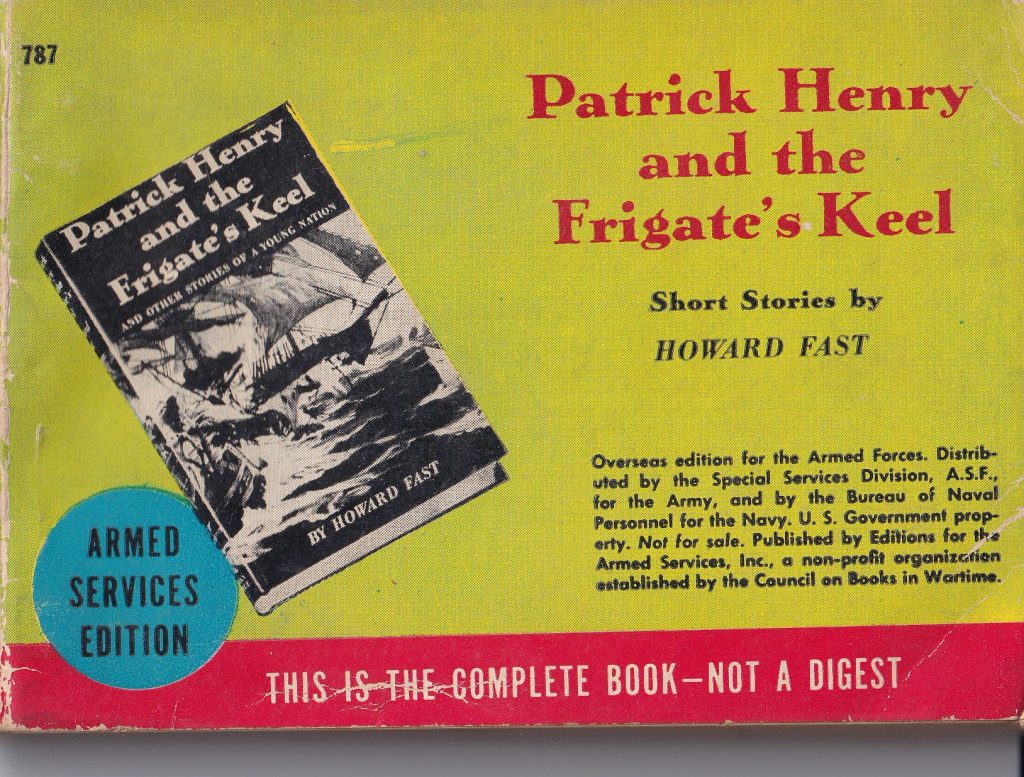
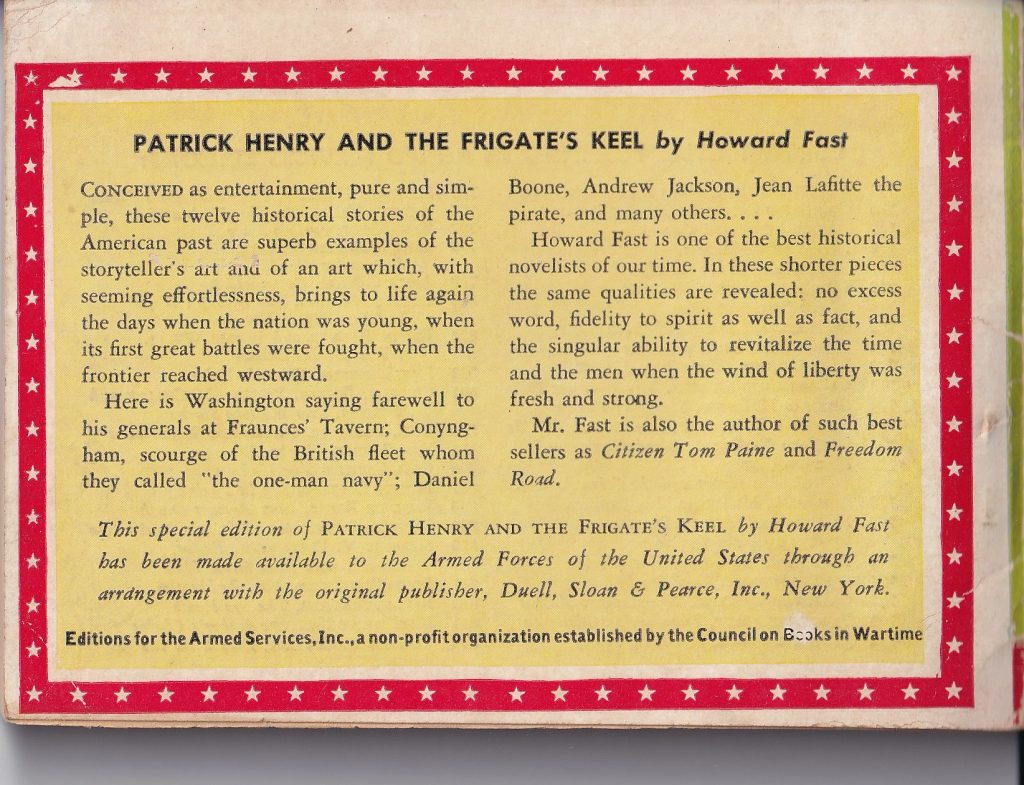
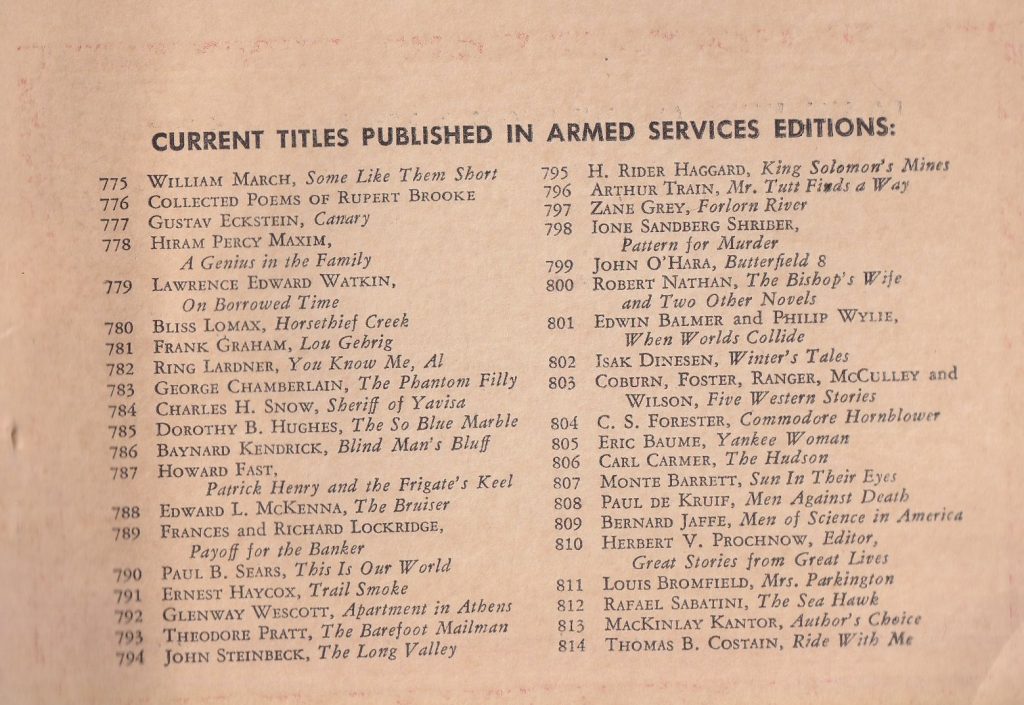
ABOUT THE AUTHOR
HOWARD FAST, author of Conceived in Liberty, The Last Frontier, The Unvanquished, Citizen Tom Paine, Freedom Road, and a number of other books, was born in New York City, in 1914. He was brought up in New York, and attended George Washington High School and The National Academy of Design. His interest in the art field, however, was not strong enough to initiate further study so, with his formal education completed, he continued his ABC’s, mostly in historical research.
Fast finished his first novel at seventeen and devoted himself exclusively to writing after winning a scholarship at Middlebury College, Middlebury, Vermont, in 1939. He had been previously a shipping clerk, tailor, laundry man, butcher, dam construction worker, and delivery boy. He moved to an Indian Reservation in Oklahoma to gather material for his book, The Last Frontier.
Traveling seems to hold first place as the ideal hobby for Mr. Fast. He has covered the whole of the United States and Mexico, hitchhiking when he could. These trips served the dual purpose of seeing the country and collecting data for his books on Tom Paine, George Washington, the Cheyenne Indians, and other historically pertinent figures and places.
The “About the Author” note in the Overseas Edition for the Armed Forces of Patrick Henry and the Frigate’s Keel said that Fast also wrote articles for The Ladies Home Journal, The Saturday Evening Post, Liberty, and other nationally known magazines. His hobbies included playing bridge, mountain climbing, talking, painting, eating, “getting away from it all,” and interest in the American Revolution. His books for the U.S. Armed Forces were published when he was still in his early thirties. He and his wife were living in Pleasantville, New York.
Howard Fast was a significant American writer of his generation, as noted in the “About the Author” note:
Mr. Fast has brought to the fore many of the problems we faced as a young nation, and those we have yet to solve. His works pack a powerful but literary wallop; they ring with honesty and authenticity.
None of Howard Fast’s fascinating background has ever been presented in any U.S. government materials about the Voice of America except in the transcript of Fast’s testimony at the executive session of the Senate Permanent Subcommittee on Investigations of the Committee on Government Operations (February 13, 1953), chaired by Senator Joseph McCarthy, and at a public hearing on February 18, 1953. The executive session transcripts were not made public until January 2003. Still, while briefly exploring Fast’s employment by VOA, the hearings did not focus on why and how Voice of America journalists failed to defend the truth and what should be done to prevent such failures in the future. Instead, Senator McCarthy chose to question witnesses about books being purchased by the U.S. Armed Forces and the State Department. The spending of public funds provided a potential legal opening, but it was a futile and embarrassing exercise that helped to ensure that future questioning of possible Soviet or Russian influence over U.S. government-funded information programs would always be viewed as suspect. Senator McCarthy was God’s best gift to Stalin, Russian propagandists, and apologists for American and other Western fellow travelers.
The Chairman. Well, do you know of any of your books that were purchased by any branch of the government? That is what I want to know.
Mr. Fast. Well, you see, the reason I am slow to answer that is this: that according to my knowledge of my books—-
The Chairman. If you have difficulty with that question, you can tell we why, and I will try to simplify it.
Mr. Fast. What is that?
The Chairman. I say if you have difficulty with that question, tell me why and I will try to simplify it.
Mr. Fast. Well, there was the Armed Service Books Project.
You may remember the books they had overseas with the two columns of type in them. I could not say now whether these books were published by the government or a private agency. It may have been a semi-official agency of the government. They were distributed through the Army. Of those books, the armed service editions, the following of my books I believe became a part of the series: The Unvanquished my novel about George Washington, Patrick Henry and the Frigate’s Keel, and Freedom Road. I believe those three books, although, again, it has been so many years since I have looked at this.
Now, there was another project—-
The Chairman. You think those were the only three purchased by the armed services?
Mr. Fast. Printed in their editions. I think so.
Now, there was another project which the State Department engaged in more directly.
Mr. Wolf. If I may clarify one thing, Senator, with regard to the previous question there may have been a misunderstanding. You mentioned something about “purchased by the armed services.” I think Mr. Fast made it clear that none of them were put out by the armed services.
The Chairman. It was an armed services project. I understand your answer, Mr. Fast, to be that you do not know who purchased the books, who put them out. You do know this was an armed services project?
Mr. Fast. This was a big reprint operation, which you probably know more about than I do. At the time I knew little about it, and now it is vague. They put out millions of books,
as I remember.
The Chairman. Then, going on to the State Department project?
Mr. Fast. Yes, on this State Department project–now, I recollect clearly the size and appearance of the books, but I don’t know too much about them at this date. The State
Department took certain books of mine, possibly only Citizen Tom Paine, and reprinted them in many languages. I am not
certain of the purpose; perhaps to stock libraries with.
The Chairman. Do you remember, roughly, the date of this?
Mr. Fast. I couldn’t guess. I would say maybe ’44 or ’45, but that is just the roughest kind of a guess.55
Howard Fast’s novels were not pro-Soviet, pro-communist, or subversive, but he, together with many other early VOA editors and writers, accepted and promoted Soviet propaganda lies in his journalistic work. The resulting disinformation helped in the establishment and Western recognition of the communist regimes in Eastern Europe, although Moscow would have imposed them with or without pro-Soviet messages in VOA broadcasts. His activities as a Communist Party member and journalist were the problem, not his books. When today’s VOA journalists repeat Russian, Chinese, or Iranian propaganda, get fooled by it, and fail to provide balance, some of the blame should go to Senator McCarthy for giving the agency’s leadership the most misused argument against questioning their performance. Any questioning can be discredited as an attack on independent journalism and progressive values.
Howard Fast’s utopian political views and the harm from his pro-Soviet propaganda and disinformation at the Voice of America do not change the fact that he was an exceptionally talented writer. His historical novels, however utopian, centered around enduring values of liberty and justice and deserved to be read. Instead of exploring his earlier activities as a Voice of America news editor and exposing Soviet propaganda influence still present in VOA programs for a few years after the war, Senator McCarthy and his staff discredited their inquiry by attempting to ban some of the best American writers and their books from the libraries of U.S. embassies. They also turned the hearings into a farce by trying to determine whether a VOA religious programs editor was a religious believer and pursuing accusations of a former VOA French Service employee who alleged that her supervisor suggested she join a “collectivist group” at the Voice of America and bear children without the benefit of marriage. His committee was much less concerned about sexual harassment and more about whether the “collectivist group” was a communist cell.
Still, there were genuine problems with Voice of America programs in the late 1940s and the early 1950s, both on the programming and technical sides of radio broadcasting. But what some thought was communist subversion even several years after the war turned out to be mostly the incompetence of the Voice of America management within the State Department and their diplomatic timidity in confronting the Soviet Union’s aggressive propaganda.
Toward the end and immediately after World War II, VOA, in line with the official U.S. government policy, still supported the establishment of pro-Soviet governments in East-Central Europe. VOA also presented Stalin as a statesman who would guarantee freedom and democracy after the war.56 Only after the Truman administration, acting under pressure from Congress and the media, carried out management reforms in the early 1950s, did VOA start to expose Stalinist human rights violations in earnest.
But even after anti-communist refugee journalists were hired to work for the foreign language services, management and programming problems at the Voice of America were not fully resolved. Millions of dollars were wasted on ineffective radio transmission facilities. Senator McCarthy was chasing communist ghosts, but he and the committee did uncover substantial waste and inefficient technical operations, as well as the reluctance of some State Department officials to expose Soviet propaganda more forcefully.
Other congressional committees confirmed these findings. In the spring of 1953, Voice of America operations were examined by the specially authorized Senate Subcommittee on Foreign Relations to Investigate the Overseas Information Programs of the United States and by the House Subcommittee of the Committee on Appropriations. They all found waste and mismanagement in the Voice of America operations and past, but not current, Soviet and communist propaganda influence over VOA programs.
In the Senate Subcommittee on Foreign Relations hearings, which were businesslike and separate from the McCarthy hearings, Senator Bourke B. Hickenlooper (Republican-Iowa) noted the lack of audience for the Voice of America English-language broadcasts and various management and program delivery deficiencies. The lawmaker who would become later the leading Republican on the Senate Foreign Relations Committee also noted improvements in the content of VOA broadcasts in foreign languages to countries behind the Iron Curtain.57
But Senator Hickenlooper discovered on his travels abroad at the end of 1952 that, contrary to assertions of Voice of America officials, there was no vast audience abroad for VOA English-language programs, especially in countries that already had some free media. He described his findings while questioning VOA managers on April 20, 1953.58
Speaking on the floor of the House of Representatives on July 24, 1951, Congressman John V. Beamer (R-IN) said that the Voice of America was “about as hard-hitting as a creampuff.” He also revealed that VOA had practically no audience in pre-Castro Cuba where free media existed before the 1952 coup led by General Fulgencio Batista.59 There was also some limited press freedom even under the Batista regime. Press freedom in Cuba ended completely with Castro’s communist coup in 1959.
Senator McCarthy and some other committee members alleged that “mere incompetence could not explain away all this waste.” But, as correctly noted by Edward Carleton Hedwick, Jr. in Policy Problems in the Voice of America – 1945-1953, the McCarthy hearings “failed to substantiate these charges.” 60
The Soviet influence at the Voice of America during World War II was not exposed to any significant degree by Senator McCarthy. It was revealed more fully and without McCarthy and his theatrics by a bipartisan committee of the House of Representatives, which in 1951-1952 investigated the Katyn massacre – the mass murder of thousands of Polish military officers and others who, in 1939-1940, were prisoners of war in the Soviet Union. The Madden Committee, named after its chairman Ray J. Madden (D-Indiana), suggested in its Final Report, released on December 22, 1952, that a clever Soviet manipulation of the U.S. government was responsible for critical and tragic mistakes in American foreign policy and U.S. information programs.
In submitting this final report to the House of Representatives, this committee has come to the conclusion that in those fateful days nearing the end of the Second World War there unfortunately existed in high governmental and military circles a strange psychosis that military necessity required the sacrifice of loyal allies and our own principles in order to keep Soviet Russia from making a separate peace with the Nazis.61
The committee added:
For reasons less clear to this committee, this psychosis continued even after the conclusion of the war. Most of the witnesses testified that had they known then what they now know about Soviet Russia, they probably would not have pursued the course they did. It is undoubtedly true that hindsight is much easier to follow than foresight, but it is equally true that much of the material which this committee unearthed was or could have been available to those responsible for our foreign policy as early as 1942.
The Madden Committee also said in its final report in 1952:
This committee believes that if the Voice of America is to justify its existence, it must utilize material made available more forcefully and effectively.
Members of Congress criticized the Office of War Information Director, Elmer Davis, for enabling the spread of Soviet fake news.62 The bipartisan select committee of the House of Representatives concluded in 1952 that Davis was responsible for repeating false Soviet propaganda through the Voice of America and domestic radio networks in the United States. Still, the incident was later forgotten and became part of the Katyn cover-up.
Mr. Davis, therefore, bears the responsibility for accepting the Soviet propaganda version of the Katyn massacre without full investigation. A very simple check with either Army Intelligence (G- 2) or the State Department would have revealed that the Katyn massacre issue was extremely controversial.
The committee had Davis read his own 1943 commentary about Katyn broadcast by the Voice of America, in which he accepted the Soviet lie about the mass murder at face value. He also repeated it to radio audiences in the United States.
Thus, Howard Fast was hardly alone in helping to spread the Soviet disinformation about the Katyn massacre and other Soviet propaganda lies in the Voice of America and the Office of War Information programs. All the individuals, later presented by their admirers as the “founding fathers” of the Voice of America, participated in promoting the Katyn lie: OWI Director Elmer Davis, his deputy and FDR’s speechwriter, Robert E. Sherwood, Joseph Fels Barnes, Wallace Carroll, and John Houseman.
Wallace Carroll, an American journalist, newspaper editor, and publisher, occupied high-level positions in the Office of War Information and was in 1944 in charge of VOA programs to Europe. In his journalistic career after the war, he served as the news editor of the Washington bureau of the New York Times from 1955 to 1963. He was also a member of the Pulitzer Prize Board.63 In his book, Persuade or Perish, published almost three years after the war, Caroll still insisted that the Soviet version of the Katyn massacre was true.64 Nearly all of the Office of War Information and the Voice of America World War II leaders and many of VOA’s journalists hired under the presumption that they were the country’s best propaganda experts capable of protecting the United States from foreign propaganda and of countering foreign propaganda abroad, turned out to be easy targets for Soviet disinformation and in many cases its most enthusiastic purveyors.
Houseman’s departure from his position as the chief producer of VOA radio programs in mid-1943 and Fast’s departure in February 1944 made no significant change in the Voice of America’s pro-Soviet and pro-Stalin propaganda. Fast received a glowing recommendation letter from VOA’s next chief, Louis G. Cowan, in which Cowan stressed that Fast’s resignation was completely voluntary and much regretted by the OWI senior leadership.65
OWI and VOA continued to support the Soviet imperialist plans for Poland’s future, as noted by Polish wartime Prime Minister Stanisław Mikołajczyk, the head of the democratic Polish Government-in-Exile based in London, which was recognized by the United States until July 5, 1945. Mikołajczyk, the leader of the Polish Agrarian Party, was a tragic figure who eventually succumbed to pressure from President Roosevelt and British Prime Minister Churchill to join the Moscow-controlled and communist-dominated Polish Provisional Government as Deputy Prime Minister in 1945. In 1947, Mikołajczyk had to flee Poland to save his life.
In his book, The Rape of Poland: Pattern of Soviet Aggression, published in 1948, Mikołajczyk described his protests about the content of the Voice of America wartime Polish broadcasts. He expressed his concerns through the Polish Ambassador in Washington, Jan Ciechanowski, and repeated them personally at the State Department during his visit to the United States in June 1944, when he also met with President Roosevelt.66 Before he met with Roosevelt, Mikołajczyk complained about the Voice of America to Under Secretary of State Edward Stettinius:
I mentioned also the tone of OWI broadcasts to Poland. They had been following the Communist line consistently, which made our own job more difficult. “it’s unwise to adopt this approach to the Polish people,” I told the Undersecretary. “If you continue to call Russia a ‘democracy,’ you may eventually regret that statement, and your people will condemn you. “Your government once called Poland ‘the inspiration of the nations,’ but now the OWI calls the Communist forces just that. Please don’t think we haven’t tried to make friends with Russia for we have. Poland just does not want to become another Red satellite.”67
Mikołajczyk reported that President Roosevelt assured him that “the OWI broadcasts about which I had complained would be changed.”68 It was an empty promise for at least several more years. Mikołajczyk observed that the OWI’s Voice of America radio broadcasts, which the Polish Government-in-Exile carefully monitored in London, “might well have emanated from Moscow itself.” He added that the anti-Nazi underground forces in Poland “was not interested in hearing pro-Soviet propaganda from the United States, since that duplicated the broadcasts sent from Moscow.”69
Poland was the largest country in East-Central Europe, already secretly assigned by President Roosevelt to the Soviet sphere of influence at the “Big Three” wartime conferences with Stalin at Tehran (November 28-December 1, 1943) and Yalta (February 4-11, 1944). Roosevelt agreed to give Russia Poland’s eastern territories formerly occupied by the Red Army in 1939 and annexed by the Soviet Union when Stalin and Hitler were still wartime allies. These agreements with Stalin were made without the knowledge of the Polish Government-in-Exile. FDR’s promises to the Soviet leader at Tehran and Yalta also meant that other countries in East-Central Europe would be dominated by Russia, notwithstanding his naive belief, reinforced by his pro-Soviet advisors and OWI propagandists, that Stalin would honor his promise to allow democratic elections in the region. 70 million people in the six Iron Curtain countries lost their freedom for nearly five decades.
John Houseman, Howard Fast, and other pro-Kremlin propagandists in the Office of War Information and the Voice of America helped Stalin move forward with his plans for taking over Eastern Europe faster and with greater ease than might have been the case otherwise. Still, without any willingness of the Western allies to be embroiled in a military conflict with Russia, an indispensable ally against Nazi Germany, these countries were doomed because of the presence of the Red Army and the brutality of the local Communists.
Besides its collusion with Soviet Russia in radio propaganda abroad, the Office of War Information also engaged in domestic propaganda, targeting Americans with the idea that the Soviet Union under Stalin’s rule should be trusted and was ready for democracy. At the request of President Roosevelt, OWI Director Elmer Davis continued his popular news commentaries on domestic U.S. radio networks.
The Office of War Information’s media outreach in the United States attracted sufficient attention and criticism that, in a bipartisan move, members of Congress defunded almost the entire OWI’s domestic propaganda budget in 1943.70 As part of its domestic propaganda outreach, the OWI produced films to justify the illegal internment of U.S. citizens of Japanese descent.
The Office of War Information also engaged in the censorship of domestic U.S. media some of it illegal even at the time of war. Several OWI officials, including Elmer Davis and the future U.S. Senator Alan Cranston (D-CA), were involved in illegal attempts, some of them successful, to shut down Polish-American radio programs in which Soviet crimes, including the Katyn massacre, were reported. Cranston’s role was revealed during the Madden Committee hearings, but Davis denied knowledge of OWI censorship of U.S. radio stations.
When questioned by the Madden Committee, Davis was unrepented and made dismissive comments about Congressman John Lesinski Sr. (D-MI) shortly after his death and Ambassador Jan Ciechanowski. Both Lesinski and Ciechanowski repeatedly warned Davis during the war about pro-communist VOA broadcasts to Poland, Yugoslavia, and other countries.71
Domestic government propaganda designed to mislead U.S. journalists included the OWI alerts to media providing false information about the Polish refugee children who were imprisoned with their parents in the Soviet Gulag. The children were evacuated from Russia in 1942 after Stalin released the Polish prisoners following the German attack on the Soviet Union. Some transited through the United States (the Roosevelt administration would not permit them to apply for asylum or be adopted by Polish-American families) and were held briefly under military guard in former camps for Japanese-Americans before being transported in sealed trains, also under U.S. military guard, to a refugee camp in Mexico. U.S. government officials wanted to prevent contact between these Polish refugee children and the media while the OWI issued misleading reports about their status.72
A careless reader may gain the impression that with the beginning of the war, some group of Poles started their journey to America and after four years, had reached this continent. Not a word about the fact that together with millions of Polish citizens this group of refugees which now has reached Mexico was deported from Poland by the Soviets and was kept by Russia under the most miserable conditions. But seeing the obvious is not a virtue with the OWI. That Office is not evidently free from fear. (Fear) before whom?
Alan Cranston and OWI Director Elmer Davis attempted earlier, in this case unsuccessfully, to have the Polish-American newspaper Nowy Świat, which published this commentary, shut down by the U.S. Department of Justice for publishing news of Soviet atrocities. In 1944, the paper pointed out that many of the Polish refugee children were orphans because their parents were murdered by the Soviet secret police or died in the Soviet Gulag from slave labor and malnutrition.
Propaganda strategies were secretly coordinated between Washington and Moscow by Robert E. Sherwood. He was a Hollywood playwright, President Roosevelt’s speechwriter, and the head of the Overseas Division in the Office of War Information, which placed him in charge of VOA radio broadcasts. Sherwood issued “propaganda directives” to VOA broadcasters, instructing them to accept the Soviet version of the Katyn massacre. In 1944, after the Soviet intelligence and propaganda operation involving Prof. Oskar Lange and a radical Polish-American priest, Father Stanislaus (Stanisław) Orlemanski, who traveled to Moscow with Lange (both met with Stalin but separately), Sherwood became convinced that Stalin was no longer an enemy of religion and called on the Office of War Information to use Orlemanski “for fighting the bogey of Bolshevism.”
The 70 million East Europeans were the real victims of President Roosevelt’s betrayal of Poland and Czechoslovakia–countries whose governments-in-exile with their armed forces were members of the anti-Nazi alliance. It was also a betrayal of American democratic values and journalistic ethics by many of the Office of War Information and Voice of America leaders and broadcasters. It could be said in defense of President Roosevelt that he led the United States to victory in World War II with relatively low American losses.
Not much could be said in defense of the Voice of America’s “founding fathers” other than that they were well-meaning. VOA broadcasts did not help to shorten the war. They strengthened the communist movement and communist regimes and may have convinced some East European refugees to return to their countries, where they were arrested, and some were tortured and executed. A declassified CIA report from 1953 featured a claim by an unidentified Slovak source asserting that some Slovaks lost their lives and freedom because the U.S. government-run Voice of America was broadcasting pro-communist propaganda and continued to downplay Stalinist crimes in radio programs to Czechoslovakia even into the early 1950s.73
The mistakes of VOA’s “founding fathers,” which brought tragedy to millions, were forgotten. Most of them enjoyed after the war the ill-deserved reputation as outstanding journalists. Howard Fast was the least lucky among them. He spent three months in federal prison in 1950 after being convicted of contempt of Congress when he refused to answer questions about other members of a communist front organization. After his conviction, he encountered difficulties in publishing some of his books in the United States. Still, he did not experience anything approaching the repressions against dissident writers in the Soviet Bloc. He supported the communist regimes, which imprisoned writers, forced others to live in exile, and practiced censorship on a massive scale. Fast’s blacklisting in the United States ended soon after the U.S. Senate voted in December 1954 to condemn Senator McCarthy.
Fast’s granddaughter, Molly Jong-Fast (daughter of feminist writer Erica Jong of the Fear of Flying fame) recalled that the great Chilean poet Pablo Neruda, a fellow Communist, wrote a poem about her famous grandfather, with a line, “You who are jailed. I embrace you, my comrade….” 74 Still, like some of his former VOA friends who had exchanged their mediocre middle-class status in the United States to join the privileged life of Red aristocracy in Eastern Europe, Fast was deeply flawed but not ill-intentioned. He wrote in The Naked God that he and his wife broke with their Communist friends who defended the 1939 Soviet-Nazi Pact, yet four years later he formally joined the Communist Party.75 In 1943, he was writing and editing news for the Voice of America, and he was censoring information that showed Stalin as an imperialist and mass murderer.
So, in 1943, I saw the Communists as the bravest and most skillful fighters for man’s freedom. I was mistaken. But a conviction thus arrived at is not easily undone.76
Senator McCarthy did not find any communists at the Voice of America in the early 1950s because they had all already left their Federal government jobs or were fired. Some, including Fast and his patron, the first VOA Director John Houseman, had been already forced out by the Roosevelt administration; the rest had left under pressure or were fired during the Truman administration.
Instead of exposing and documenting how the Voice of America became a tool of Soviet propaganda to ensure that it would never happen again, McCarthy made false accusations against Edward R. Murrow, who said that he was reporting truthfully during the war that the Soviets were responsible for the Katyn massacre when many other Western journalists did not, including almost all of the ones based in Moscow, among them an OWI volunteer-journalist Kathleen Harriman, daughter of the U.S. ambassador to the Soviet Union. They both testified before the Madden Committee.
One of the few reporters on the 1944 NKVD-arranged trip to Katyn who chose not to report Soviet lies was an African-American journalist and writer, Homer Smith, Jr. (1909-1972). I wrote in an op-ed that he was a 20th-century fighter for freedom and human dignity who deserves to be admired and remembered by more people.77 During World War II, almost all elite Western journalists, including all who were in charge of the Voice of America, repeated Soviet dictator Joseph Stalin’s lies about the massacre of thousands of Polish military officers and intellectual leaders who were prisoners in the Soviet Union. But Homer Smith, who at that time lived in Russia, chose not to participate in the Kremlin’s propaganda charade. He later wrote in his book about the Katyn massacre after escaping from the cradle of communism.
In my recent op-ed, I wrote how Homer Smith responded differently than the privileged white reporters when they were shown Soviet-fabricated evidence on the trip to Katyn:
Many of VOA’s early officials and broadcasters were well-meaning but easily duped, with tragic consequences for international radio audiences. They helped spread the lie that Stalin was a democrat who could be trusted. Later in his journalistic career, Homer Smith, Jr. was not among those so easily misled. He was a victim of racism. He was not part of the privileged elite. And he saw through Stalin’s lies much sooner than many of his White American and British colleagues.78
Ted Lipien, “Black History Hero Homer Smith Fought Racism at Home and Soviet Propaganda Abroad,” Washington Examiner, February 28, 2022.
The shakeup at the Office of War Information in 1943 and the later forced departure of Howard Fast were not a result of any sudden “Red Scare” within the progressive Roosevelt administration. The high-ranking U.S. official responsible for initiating the 1943 removal of some of the Communists and Soviet sympathizers working for the Voice of America was no McCarthyite. He was Under Secretary of State Sumner Welles, a distinguished diplomat, President Roosevelt’s friend, and his favorite foreign policy advisor. He could hardly be accused of having any right-wing, McCarthyite tendencies. Welles pushed in 1943 for the removal of John Houseman, from the Office of War Information, which at that time included the Voice of America because he suspected him of hiring pro-Soviet Communists for VOA jobs.
The records of the men involved seem to indicate that should there be a divergence between the policy of the States and the policy of Soviet Russia, these men, with a large degree of control of the American machinery of war-making, would probably follow the line taken by Russia, rather than the line taken by the United States.79
In a previously classified April 6, 1943 memorandum to Marvin H. McIntyre, Secretary to the President, with enclosures, Welles justified the denial to issue U.S. passports for official government travel abroad to Houseman and other Office of War Information government executives suspected of being Soviet and Communist sympathizers. His memorandum did not include Howard Fast. The State Department denied his passport application for official VOA travel abroad a few months later.
The memorandum Under Secretary of State Sumner Welles sent to the FDR White House in April 1943 noted the fascination of some American liberals with Soviet Communism and urged finding other liberal individuals – not communist sympathizers – to be put in charge of U.S. government information programs. An addendum to Welles’ memorandum noted the pro-Soviet views of Fast’s and Houseman’s boss, Joseph Felt Barnes, although his application for a U.S. passport was not denied.
It is reliably stated that there has been no crucial point in Russian development, since 1934, when Barnes has not followed the Party line and has not been much more successful than the official spokesman in giving it a form congenial to the American way of expression.
The memo charged that Houseman was “Said to have been responsible for placing Communists in key positions in foreign radio sections of OWI [Office of War Information].”
Welles was one of the most liberal members of the Roosevelt administration, but he was also less pro-Soviet and more realistic than some of the other FDR’s advisors. A few of them, including Alger Hiss, were later known or suspected Soviet spies. Welles’ resignation from the State Department in September 1943 was linked to unproven allegations of a sexual misconduct incident on a train involving African-American porters. Still, there were also conflicts between him and Secretary of State Cordell Hull and former ambassador William Bullitt, the first U.S. ambassador to the Soviet Union. Both conspired to get Welles removed, citing his alleged homosexuality. President Roosevelt did not want Welles to resign over spurious sexual allegations but could not, at the time of war, go against his Secretary of State. Accusations of homosexual propositions were later dismissed as false by Welles’ son and biographer, Benjamin Welles, who attributed their origin to his father’s drunken talk.
The Soviets and Communists had good reasons to dislike Welles. He was the author of the Welles Declaration, a diplomatic statement issued by him on July 23, 1940, when he was the acting Secretary of State, condemning the June 1940 Soviet occupation of Lithuania, Latvia, and Estonia, which followed the signing of the secret protocols of the 1939 Hitler-Stalin Pact, also referred to as the Molotov-Ribbentrop Pact. In the declaration bearing his name, the United States refused to recognize the annexation of the Baltic States into the Soviet Union.
In his 1943 memorandum to the White House, Welles alluded to communist attempts to discredit members of the Roosevelt administration disliked by the Soviet government and its international communist movement. Pro-Moscow Communists in the United States would have good reason to try to smear Welles’ reputation and force him out of his job, especially since President Roosevelt wanted Welles to go to Moscow to negotiate with the Russians rather than send his elderly and more pliable Secretary of State Cordell Hull. Because of the growing sexual scandal that could harm President Roosevelt, Welles did not accept the Moscow assignment and resigned a few days later.80
They have included a continued and bitter hostility to the Government of General Vargas in Brazil; to the present Peruvian Government; and to a considerable number of officials in the United States Government who are deemed inconvenient.
In his 1943 memorandum to the White House, Sumner Welles was not opposed to U.S. overseas broadcasting and other information programs conveying a liberal message reflecting traditional liberal American values, but he warned against hiring pro-Soviet communist activists for U.S. government jobs.
If it is desired to give a distinctly liberal cast to these organisations, it would seem possible to find men who are liberal in the light of their own conviction, and of the American ideal, rather than men who have, for one reason or another, elected to give expression to their liberalism primarily by joining Communist front organizations, and apparently sacrificing their independence of thought and action to the direction of a distinctly European movement.81
Lessons for Today

Howard Fast has been a persona non grata at the Voice of America for many decades. He is not mentioned in the official presentation, “VOA Authors: 75 Years of After-Hours Wisdom” as one of the famous writers who had worked at the Voice of America. The brochure about VOA authors, posted online in November 2019, listed the then-VOA Director Amanda Bennett (she served as VOA Director from 2016 to 2020) as a VOA author with the largest number of books: six. Howard Fast wrote and published more than 70 books, many of them bestsellers, including Spartacus, which inspired the 1960 film directed by Stanley Kubrick. Fast is by far the most published among the writers who at one time had worked for the Voice of America.
The hiding of the true history of the Voice of America’s early years appears to be driven partly by the shame felt by those Americans, including some former and some current VOA officials, who knew that many of VOA’s left-leaning founding fathers, early editors, and writers were Stalin’s unwitting and, in some cases, willing propagandists and censors. They prefer to see them as well-meaning progressives who did not do any harm and, therefore, should not be exposed or criticized as Soviet agents of influence.
The Voice of America facilitating Stalin’s takeover of Eastern Europe should be acknowledged to help VOA regain its footing and possibly its impact in countries like Russia, China, and Iran. The true history of the collusion with Soviet Russia, in which the early Voice of America leaders, editors, and broadcasters eagerly participated, should be carefully examined to avoid repeating the old mistakes. Voice of America officials covered up this history for many decades. They replaced facts with the preferred narrative that VOA always told the truth from the very beginning and resisted every attempt of government interference.
American journalist and writer Eugene Lyons, who had worked as a reporter in the Soviet Union in the 1930s, was initially a pro-communist fellow traveler and interviewed Joseph Stalin, but later became a strong critic of Communism and Soviet Russia, became convinced that the Voice of America employed in its early years pro-Kremlin “subversives” because he knew many of them from the time he was moving in their circles. He was also convinced that by 1954, these individuals were no longer employed by the Federal government.
Without doubt some “subversive” individuals formerly found their way into VOA, as into other agencies in Government. Fortunately the Voice has cleared house. Ardent anti-Communists on the inside are now convinced that no known Communists or Communist sympathizers remain.82
At the conclusion of his 1954 Reader’s Digest article, Eugene Lyons wrote:
That the Voice has shortcomings is admitted. But the remedy is not to destroy this one official channel for reaching the freedom-loving peoples of the world. The remedy is to improve and strengthen the Voice.83
Re-learning the history of the Voice of America will not be an easy task. McCarthy’s delusional rantings, full of unsupported accusations against innocent individuals, helped to discredit legitimate accounts of the earlier Soviet influence within VOA, which by the early 1950s President Truman had, in any case, already stamped out. The reports of the bipartisan Madden Committee, chaired by a Democrat, which carefully documented the Katyn massacre and the cover-up by the Office of War Information and the Voice of America of Katyn and other Soviet genocidal crimes, were never mentioned in books and articles about VOA written by former VOA officials.
Once the Voice of America started to counter Soviet Communism in the early 1950s, albeit not yet very effectively, many conservatives, who initially exposed the Soviet subversion, were reluctant to bring up VOA’s past mistakes since publicizing them could damage the station’s newly gained reputation as a trustworthy news source in confronting Soviet propaganda. Ironically, some right-leaning American politicians and pundits, targeted for years by Putin’s influence operations, are now the largest group falling for the Kremlin’s propaganda. This does not mean that segments of the Western Left, who were the primary target of Soviet propaganda during the Cold War, are unaffected by Putin’s disinformation. Left-leaning journalists still fall for classic Soviet propaganda themes in their new Russian version. They are, however, no longer firmly on the side of post-Soviet Russia since it ceased being linked in their minds with social progress and socialism.
It is safe to say that, at least for now, the story of the Soviet manipulation of the American government radio during World War II and in the early years of the Cold War has been forgotten. After leaving the White House in 1961, former President Dwight D Eisenhower briefly alluded in his 1965 memoirs, The White House Years: Waging Peace 1956-1961, to the Voice of America’s wartime record of collusion with Soviet Russia. He wrote, “During World War II, the Office of War Information had, on two occasions in foreign broadcasts, opposed actions of President Roosevelt; it ridiculed the temporary arrangement with Admiral Darlan in North Africa and that with Marshall Badoglio in Italy.” “President Roosevelt took prompt action to stop such insubordination,” Eisenhower noted. He did not call these early broadcasts “Voice of America” since the name was not officially adopted until after the war, but his criticism was added to observations about a VOA reporter, whom he accused of trying to generate negative news about his Middle East policy.84
Ignorance of history allows new generations of VOA leaders and broadcasters to be deceived by new dictators, especially by the ex-KGB officer, Russian President Vladimir Putin. In 2011, an independent Russian journalist and new media scholar, Dr. Nikolay Rudenskiy, who evaluated the VOA Russian website for the Broadcasting Board of Governors concluded that it had a “pro-Putin bias” and downplayed human rights reporting and American viewpoints.
In 2012, the VOA Russian Service posted an interview with Putin’s critic and anti-corruption activist, Alexei Navalny, that turned out to be fake and was most likely planted by the Russian security services. NPR reported that when Voice of America published an online interview with Navalny, who had previously been the victim of many dirty tricks by the pro-Kremlin media, Navalny quickly tweeted that the interview that had him criticizing other Russian opposition figures was a fake. The then-VOA Director, David Ensor, responded: “We may have been scammed.”85
In 2014, both VOA and its parent agency, which was then called the “Broadcasting Board of Governors (BBG) and is now known as the U.S. Agency for Global Media (USAGM) supported the Russian claim that the residents of Crimea were overwhelmingly in favor of the annexation of the illegally occupied territory. VOA even posted a map showing Crimea as no longer being part of Ukraine. The map was later corrected after outside protests were made to the Broadcasting Board of Governors and the VOA management.
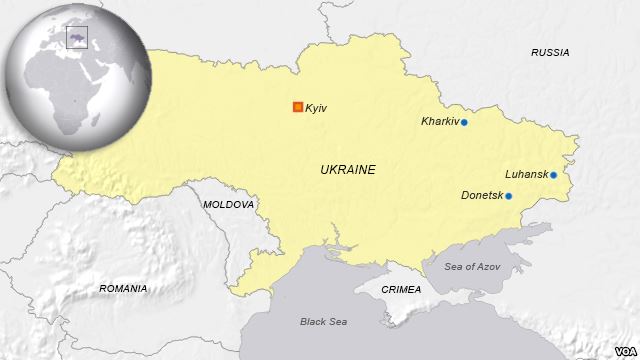
In recent years, VOA glorified Fidel Castro (2016) and Che Guevara (2019) in online reports and social media posts that ignored the many victims of communist revolutionaries, leaders, and dictators. In 2016, some Voice of America Latin American Division employees genuinely mourned Fidel Castro’s death.
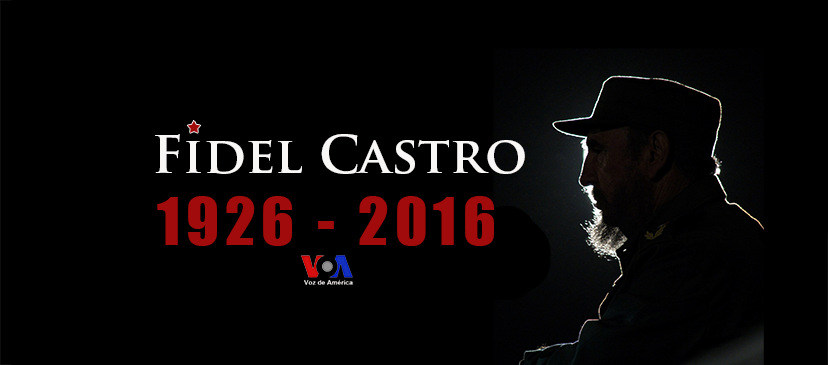
VOA also gave a platform to Angela Davis (2017), and in another report presented her as a human rights defender. VOA writers and editors forgot that she was a favorite of communist regimes which she supported. She featured prominently in their propaganda and received the Lenin Peace Prize. There is a photograph of her with East German communist leader Erich Honecker who initiated the building of the Berlin Wall and was responsible for the order to fire on anyone trying to escape to the West.86
VOA failed to note Angela Davis’ Communist Party membership or the fact that Russian Nobel Prize-winning writer Alexandr Solzhenitsyn and East European dissidents condemned her, as Solzhenitsyn revealed in his speech, “Communism: A Legacy of Terror,” at the American Federation of Labor and Congress of Industrial Organizations (AFL–CIO) event in New York City on July 9, 1975, for reportedly refusing to intercede with the communist authorities to get Czechoslovak human rights activists released from prisons.87
Berlin and Zurich-based historian Kata Krasznahorkai, who lived in Hungary under Communism, told Deutsche Welle that Angela Davis “knew exactly who would give her the support she needed — not the dissidents and opposition artists, but the state authorities. She was thus willing to compromise, sacrificing her image to fulfill her goals.”88
Ending racism and seeking justice for African Americans was a long-overdue and noble goal, but unlike such American liberals as Martin Luther King and Robert Kennedy, Howard Fast and Angela Davis chose a brutal ideology and allied themselves with repressive regimes that caused the death and suffering of millions of people. They chose not to see that these regimes were more racist in the treatment of their minorities than any liberal-democratic government in the West.
American historian Gerald Sorin, the author of Howard Fast: Life and Literature in the Left Lane (Bloomington: Indiana University Press, 2012), wrote about the failure of Howard Fast and other American Communists to defend human rights in countries under communist dictatorships:
They failed to acknowledge the human inclination to abuse power, ignored horrific consequences, and often rationalized Soviet barbarities as historically necessary. One of the benefits of examining the life of Howard Fast is that it enables us to make yet one more exploration into the hoary question of how this could have happened.89
Gerald Sorin, Howard Fast: Life and Literature in the Left Lane (Bloomington: Indiana University Press, 2012), p. 19.
The Voice of America management still refuses to admit that VOA’s early leaders and broadcasters played a helpful role for Stalin and the Kremlin in facilitating the spread of Soviet and communist propaganda and disinformation. Many former and current VOA executives have tried to keep out of the public eye any information about the phenomenal early successes of the Soviet influence operations directed at the Office of War Information and the Voice of America or attempted to downplay their significance. The hiding of the truth about being misled by Stalin and doing his propaganda work is a dangerous path because it allows the same mistakes to be repeated by today’s VOA journalists, from whom the history of their organization has been both hidden and distorted.

Tadeusz (Ted) A. Lipien is an international media executive, journalist, writer, blogger, and press freedom advocate. He worked in or wrote about U.S. international broadcasting for over 40 years, beginning as a radio announcer for the Voice of America (VOA) in 1973 and serving as President of Radio Free Europe/ Radio Liberty (RFE/RL) from December 18, 2020 to January 23, 2021. Lipien reported in Polish and in English on developments in Poland and Eastern Europe, becoming Chief of VOA’s Polish Service in 1982 during the Solidarity trade union’s struggle for democracy. He interviewed Vice President George H. W. Bush (future U.S. President), Cardinal Karol Wojtyła (future Pope John Paul II), Solidarity leader Lech Wałęsa (future President of Poland), and many other Polish democratic opposition leaders who later held top positions in various post-Cold War governments in Poland. After the fall of the Iron Curtain, he took a hiatus from journalism to build a network of VOA and RFE/RL affiliate stations in Eastern Europe, Russia, Central Asia, and, eventually, Iraq and Afghanistan. Lipien then became the Director of the Eurasia Division at VOA, where he expanded television and multimedia digital programming to Ukraine, Russia, and other countries, and launched a multimedia and multilingual VOA opinion magazine, New Europe Review, recruiting for its International Advisory Board former Czech President Vaclav Havel and former U.S. National Security Advisor Dr. Zbigniew Brzezinski. In 2005, he was named Acting Associate Director of VOA. While working for VOA, he received multiple awards, including the Employee of the Year Award and commendations from VOA Directors, both Democrats, and Republicans. He retired from VOA in 2006, going on to found Free Media Online, an NGO covering international broadcasting and media freedom, and co-founded the Committee for U.S. International Broadcasting, a non-profit supporting media outreach to countries suffering from censorship and human rights violations. His articles on U.S. international broadcasting have been published in American Diplomacy Journal, National Review, The Washington Times, Digital Journal, and The Washington Examiner. His views on media have been quoted by CNN, NBC, FOX, NPR, The New York Times, The Wall Street Journal, and The Washington Post. He is the author of a book published in English and Polish about feminism and Pope John Paul II. Lipien earned a B.A. in International Relations with distinction from George Washington University.
NOTES:
- Howard Fast, The Naked God: The Writer and the Communist Party (New York: Frederick A. Praeger, 1957), p. 191.
- John Earl Haynes and Harvey Klehr, Venona: Decoding Soviet Espionage in America, Yale Nota Bene (New Haven: Yale Univ. Press, 2000), pp. 197-199.
- John Earl Haynes and Harvey Klehr, Venona: Decoding Soviet Espionage in America, Yale Nota Bene (New Haven: Yale Univ. Press, 2000), p. 198.
- Barnard Bulletin, “Opposing Views Debate U.S. Policy: ASU, WAW Proponents Discuss Aspects of Assistance to Britain,” Vol. XLV, No. 25, February 21, 1941, pp. 1 and 3, https://digitalcollections.barnard.edu/object/bulletin-19410221/barnard-bulletin-february-21-1941.
- Flora Don Wovschin, “Soviet Student Leader Describes His Country’s War Against Nazism: Nikolai Krasavchenko, interviewed by Bulletin, Tells of Nazi Horrors, Student Heroism,” Barnard Bulletin, Vol. XLVII, No. 2, October 1, 1942, https://digitalcollections.barnard.edu/object/bulletin-19421001/barnard-bulletin-october-1-1942.
- Haynes and Klehr, Venona, pp. 200-201.
- Federal Bureau of Investigation, Confidential memorandum declassified March 3, 2015 “Marion Davis Berdecio,” June 24, 1957.
- Ibid.
- Harvey Klehr, John Earl Haynes, and Fridrikh Igorevich Firsov, The Secret World of American Communism (New Haven and London: Yale University Press), pp. 272-273.
- Klehr, Haynes, and Firsov, The Secret World of American Communism, pp. 210-211.
- Journalist Julius Epstein quoted by Congressman George A. Dondero (R-MI) in Congressional Record, August 9, 1950. The quote was from the article which was published in the Evening Star Washington newspaper on August 7, 1950. Congressional Record: Proceedings and Debates of the 81st Congress, Second Session, Appendix. Part 17 ed. Vol. 96. August 4, 1950, to September 22, 1950. Washington, DC: United States Government Printing Office, 1950, pp. A5744-A5745.
- Julius Epstein, “The O.W.I. and the Voice of America,” a reprint from the Polish American Journal, Scranton, Pennsylvania, 1952.
- Oliver Carlson, Radio in the Red (New York: Catholic Information Society, 1947), p. 7.
- Carlson, Radio in the Red, p. 7.
- Carlson, Radio in the Red, p. 7.
- Paweł Machcewicz, Poland’s War on Radio Free Europe, 1950-1989 (Washington, D.C : Stanford, California: Woodrow Wilson Center Press ; Stanford University Press, 2014), pp. 70-75. Also see: Marek Walicki, Z Polski Ludowej do Wolnej Europy (Warszawa: Bellona Spółka Akcyjna, 2018), pp. 170-182.
- Ted Lipien, “President Truman Launches Voice Of America Transmitter Ship ‘Courier’ – Cold War Radio Museum,” accessed November 4, 2022, http://www.coldwarradiomuseum.com/timeline/president-truman-launches-voice-of-america-transmitter-ship-courier/.
- Walicki, Z Polski Ludowej do Wolnej Europy, pp. 170-182.
- Sanford Ungar, Former Voice of America (VOA) Director, “Voice of America: Recognizing 80 Years – and Counting – of Independent Journalism,” InsideVOA You Tube Channel, February 3, 2022, https://youtu.be/CvzuuWuQo6Q.
- Yolanda Lopez, Voice of America (VOA) Acting Director, “Voice of America: Recognizing 80 Years – and Counting – of Independent Journalism,” InsideVOA You Tube Channel, February 3, 2022, https://youtu.be/CvzuuWuQo6Q.
- John Houseman, Unfinished Business (New York: Applause, 1989), p. 247.
- Curator, “Future First Voice of America Director Introduces Americans To Entertainment Fake Radio News in 1938 – Cold War Radio Museum,” accessed November 2, 2022, http://www.coldwarradiomuseum.com/timeline/future-first-voice-of-america-director-introduces-america-to-fake-entertainment-radio-news-in-1938/.
- Associated Press, “U.S. Investigates Radio Terror; Realism Curb Urged; Mars Silent,” Boston Evening Transcript, October 31, 1938.
- Fast, Being Red: A Memoir, p. 18.
- Richard Wright’s essay in Richard Crossman, ed., The God That Failed (New York: Bantam Books, 1959), pp. 143-145.
- Curator, “U.S. Senators Criticize VOA-NBC Broadcasts As ‘Baloney,’ ‘Lies,’ ‘Insults,’ ‘Drivel,’ ‘Nonsense,’ ‘Falsehoods,’ ‘Downright Tragedy.’ – Cold War Radio Museum,” accessed October 31, 2022, http://www.coldwarradiomuseum.com/timeline/u-s-senators-criticize-voa-nbc-broadcasts-as-baloney-lies-insults-drivel-nonsense-falsehoods-downright-tragedy/.
- Curator, “Congressman Reveals Voice Of America To Behind Iron Curtain Is ‘Drab’ And ‘Unconvincing’ – Cold War Radio Museum,” accessed October 31, 2022, http://www.coldwarradiomuseum.com/timeline/congressman-reveals-voice-of-america-to-behind-iron-curtain-is-drab-and-unconvincing/.
- Curator, “Voice of America Censors Soviet Massacre Survivor Józef Czapski And Lies About Its Actions – Cold War Radio Museum,” accessed October 31, 2022, http://www.coldwarradiomuseum.com/timeline/voice-of-america-censors-soviet-massacre-survivor-jozef-czapski-and-lies-about-its-actions/.
- Ted Lipien, “SOLZHENITSYN Target of KGB Propaganda and Censorship by Voice of America,” Cold War Radio Museum (blog), November 7, 2017, http://www.coldwarradiomuseum.com/solzhenitsyn-target-of-kgb-propaganda-and-censorship-by-voice-of-america/.
- Czesław Straszewicz, “O Świcie,” Kultura, October, 1953, 61-62. I am indebted to Polish historian of the Voice of America’s Polish Service Jarosław Jędrzejczak for finding this reference to VOA’s wartime role.
- Ted Lipien, “Broel Plater Resigns In Protest Against Soviet Propaganda On Voice Of America – Cold War Radio Museum,” accessed October 31, 2022, https://www.coldwarradiomuseum.com/timeline/broel-plater-resigns-in-protest-against-soviet-propaganda-on-voice-of-america/.
- “How a Refugee Journalist Exposed Voice of America Censorship of the Katyn Massacre,” Cold War Radio Museum (blog), April 16, 2018, http://www.coldwarradiomuseum.com/how-refugee-journalist-exposed-voice-of-america-katyn-censorship/.
- Curator, “Quote: ‘…the Time Has Arrived to Investigate Mr. Epstein…he Is Not…best Type of New American Citizen’ – VOA Director Foy D. Kohler – Cold War Radio Museum,” accessed October 31, 2022, http://www.coldwarradiomuseum.com/timeline/quote-the-time-has-arrived-to-investigate-mr-epstein-he-is-not-best-type-of-new-america-citizen-voa-director-foy-d-kohler/.
- Review of Being Red by Howard Fast, Book Verdict, October 1, 1990, https://bookverdict.mediasourceinc.net/details.xqy?uri=Product-93827625072287.xml.
- Fast, Being Red: A Memoir, p. 77.
- Fast, The Naked God: The Writer and the Communist Party, p. 48.
- Stanley Meisler, “The Lost Dreams of Howard Fast by Stanley Meisler,” accessed October 31, 2022, https://www.stanleymeisler.com/article/the-lost-dreams-of-howard-fast.
- Howard Fast, “On Receiving the Stalin Peace Award,” http://www.trussel.com/hf/plots/t590.htm.
- Howard Fast, Being Red (Boston: Houghton Mifflin Company, 1990), p. 318.
- Pacifica Radio’s Democracy Now, April 8, 1998, “Interview with Howard Fast,” https://www.trussel.com/hf/democnow.htm.
- Howard Fast, Being Red: A Memoir (Boston: Houghton Mifflin, 1990), p. 243.
- Ted Lipien, “Voice of America Polish Writer Listed As His Job Reference Stalin’s KGB Agent of Influence Who Duped President Roosevelt,” Cold War Radio Museum (blog), February 12, 2020, http://www.coldwarradiomuseum.com/voice-of-america-polish-editor-listed-stalins-kgb-agent-of-influence-as-job-reference/.
- Ted Lipien, “Mira Złotowska – Michałowska — pro-Soviet Collaborators at OWI and VOA,” Cold War Radio Museum(blog), December 10, 2019, http://www.coldwarradiomuseum.com/mira-zlotowska—michalowska—-pro-soviet-collaborators-at-owi-and-voa/.
- Lipien, “Mira Złotowska – Michałowska — Was She VOA’s Communist ‘Mata Hari’?,” Cold War Radio Museum (blog), December 10, 2019, http://www.coldwarradiomuseum.com/mira-zlotowska—michalowska—-was-she-voas-communist-mata-hari/.
- Ted Lipien, “Communist Secret Police in Poland Spied on Voice of America’s Willis Conover to Shut down Radio Free Europe,” Ted Lipien (blog), August 16, 2020, https://tedlipien.com/blog/2020/08/16/communist-secret-police-in-poland-spied-on-voice-of-americas-willis-conover-to-shut-down-radio-free-europe/.
- Arch Puddington, Broadcasting Freedom: The Cold War Triumph of Radio Free Europe and Radio Liberty (Lexington: The University Press of Kentucky, 2000) 125-126. Also see: Yale Richmond, “Nixon in Warsaw,” American Diplomacy, November 2010, http://americandiplomacy.web.unc.edu/2010/11/nixon-in-warsaw/.
- Ted Lipien, “Voice of America Polish Writer Listed As His Job Reference Stalin’s KGB Agent of Influence Who Duped President Roosevelt,” Cold War Radio Museum (blog), February 12, 2020, http://www.coldwarradiomuseum.com/voice-of-america-polish-editor-listed-stalins-kgb-agent-of-influence-as-job-reference/.
- Bolesław Gebert, Z Tykocina Za Ocean (Warszawa: Czytelnik, 1982), p. 55.
- Stanisław Mikołajczyk, The Rape of Poland: Pattern of Soviet Aggression (New York and Toronto: McGraw-Hill Book Company, Inc, 1948), p. 60.
- Gebert, Z Tykocina Za Ocean, p. 160.
- Ted Lipien, “Mira Złotowska – Michałowska – VOA Journalist Marries Communists,” Cold War Radio Museum (blog), December 10, 2019, http://www.coldwarradiomuseum.com/mira-zlotowska-michalowska-voa-journalist-marries-communists/.
- Ted Lipien, “LIPIEN: Remembering a Polish-American Patriot,” The Washington Times, September 1, 2010, https://www.washingtontimes.com/news/2010/sep/1/remembering-a-polish-american-patriot/.
- Howard Fast, the 1953 Stalin Peace Prize winner, best-selling author, journalist, former Communist Party member, and reporter for its newspaper The Daily Worker, describes his role as the chief writer of Voice of America (VOA) radio news translated into multiple languages and rebroadcast for four hours daily to Europe through medium wave transmitters leased from the BBC in 1942-1943. Howard Fast, Being Red (Boston: Houghton Mifflin Company, 1990), pp. 18-19.
- Howard Fast, Being Red (Boston: Houghton Mifflin Company, 1990), p. 23.
- EXECUTIVE SESSIONS OF THE SENATE, PERMANENT SUBCOMMITTEE ON INVESTIGATIONS OF THE COMMITTEE ON GOVERNMENT OPERATIONS, VOLUME 1, EIGHTY-THIRD CONGRESS, FIRST SESSION, 1953, MADE PUBLIC JANUARY 2003, https://www.govinfo.gov/content/pkg/CPRT-107SPRT83869/html/CPRT-107SPRT83869.htm.
- Sandro Gerbi, “Italy and the Voice of America” (Columbia University: Centro Primo Levi New York, 2010), https://primolevicenter.org/italy-and-the-voice-of-america/.
- Curator, “Senator Hickenlooper Questions Voice of America Audience Claims For VOA English Broadcasts, Notes Improvement Of News To Soviet Block – Cold War Radio Museum,” accessed October 31, 2022, http://www.coldwarradiomuseum.com/timeline/senator-hickenlooper-questions-voice-of-america-audience-claims-for-voa-english-broadcasts-notes-improvement-of-news-to-soviet-block/.
- United States. Congress. Senate. Committee on Foreign Relations. Subcommittee Under S. Res. 74 on Overseas Information Programs of the U.S. Overseas Information Programs of the U.S.: Hearings Before the United States Senate Committee On Foreign Relations, Subcommittee Under S. Res. 74 On Overseas Information Programs of the U.S., Eighty-Second Congress, Second Session. Washington: U.S. G.P.O., 1952. Page 1474. https://hdl.handle.net/2027/umn.31951d02094637q?urlappend=%3Bseq=1498.
- Curator, “Voice of America Had No Audience in Pre-Castro Cuba and Initially Supported Soviet Socialism in Eastern Europe – Cold War Radio Museum,” accessed November 1, 2022, https://www.coldwarradiomuseum.com/voice-of-america-had-no-audience-in-pre-castro-cuba-did-poorly-in-exposing-failures-of-soviet-socialism/.
- Edward Carleton Helwick, Jr., Policy Problems of the Voice of America: 1945-1953. Master Thesis, Department of Political Sciences, University of Southern California, June 1954. 76. Also, see United States. Congress. Senate. Committee on Government Operations. (1953). State Department information program–Voice of America: Hearings before the Permanent Subcommittee on Investigations of the Committee on Government Operations, United States Senate, Eighty-third Congress, first session, pursuant to S. Res. 40, a resolution authorizing the Committee on Government Operations to employ temporary additional personnel and increasing the limit of expenditures. Washington: U.S. Govt. Print. Off.., Part I, p. 8. https://hdl.handle.net/2027/hvd.32044059332916?urlappend=%3Bseq=19.
- Select Committee to Conduct an Investigation and Study of the Facts, Evidence and Circumstances of the Katyn Forest Massacre, The Katyn Forest Massacre: Final Report (Washington: United States Government Printing Office, 1952), pp. 11-13, https://archive.org/details/KatynForestMassacreFinalReport.
- “OWI Head Elmer Davis Spread Soviet Katyn Propaganda Lie in World War II Voice of America Broadcasts,” Cold War Radio Museum (blog), May 11, 2018, http://www.coldwarradiomuseum.com/owi-head-elmer-davis-promotes-soviet-katyn-propaganda-lie-in-the-us-and-in-voice-of-america-radio-broadcasts/.
- Ted Lipien, “Secret Memos on How Voice of America Was Duped by Soviet Propaganda on Katyn Massacre,” Cold War Radio Museum (blog), May 2, 2021, http://www.coldwarradiomuseum.com/secret-memos-on-how-voice-of-america-was-duped-by-soviet-propaganda-on-katyn-massacre/.
- Wallace Carroll, Persuade or Perish (Boston: Houghton Mifflin Company, 1948), p. 152.
- Fast, Being Red: A Memoir, p. 25.
- Ted Lipien, “Polish Diplomat Who Exposed Pro-Stalin U.S. Propagandists,” Cold War Radio Museum (blog), December 16, 2018, http://www.coldwarradiomuseum.com/the-polish-diplomat-who-fought-wwii-voice-of-america-pro-stalin-propaganda/.
- Mikołajczyk, The Rape of Poland: Pattern of Soviet Aggression, pp. 58-59
- Ibid. p. 61.
- Ibid. p. 25.
- “HISTORY How Congress Exposed, Defunded and Stopped Domestic U.S. Government Propaganda in 1943, USAGM Watch, June 22, 2020, https://bbgwatch.com/bbgwatch/history-how-congress-exposed-defunded-and-stopped-domestic-u-s-government-propaganda-in-1943/
- Ted Lipien, “Voice of America WWII Communist Propaganda to Yugoslavia – Cold War Radio Museum,” accessed November 3, 2022, http://www.coldwarradiomuseum.com/voice-of-america-wwii-communist-propaganda-to-yugoslavia/.
- Curator, “How U.S. Lied About Polish Refugee Children to Protect Stalin – Cold War Radio Museum,” accessed October 31, 2022, http://www.coldwarradiomuseum.com/how-u.s.-shipped-polish-refugee-orphans-from-russia-to-mexico-in-locked-trains-and-lied-about-it-to-protect-stalin/.
- Central Intelligence Agency, “Slovak Reaction to VOA Broadcasts,” June 17, 1953. Last accessed January 2, 2019, https://www.cia.gov/library/readingroom/docs/CIA-RDP80-00810A001400310007-5.pdf. Also see Curator, “1953 CIA Source: People Died in Czechoslovakia Because of Pro-Communist Propaganda from Voice of America – Cold War Radio Museum,” accessed October 31, 2022, https://www.coldwarradiomuseum.com/listening-to-western-broadcasts-in-communist-ruled-czechoslovakia/.
- Molly Jong-Fast, Girl (Maladjusted) (New York: Villard Books, 2006), p. 23. A talented writer, Jong-Fast pokes fun in her book at her grandfather and other family members. She noted that 83-year-old Fast married his secretary. About Neruda’s poem, she wrote: “It is by far Pablo Neruda’s worst poem,” and “Communism does not translate into good poetry.” (Author’s note: It is easy for Western journalists and writers, who never had come close to experiencing what millions of victims of Communism have experienced, to make fun of it.)
- Fast, The Naked God: The Writer and the Communist Party, pp. 11-12.
- Fast, The Naked God: The Writer and the Communist Party, p. 13.
- Ted Lipien, “Black History Hero Homer Smith Fought Racism at Home and Soviet Propaganda Abroad,” Washington Examiner, February 28, 2022, https://www.washingtonexaminer.com/restoring-america/patriotism-unity/black-history-hero-homer-smith-fought-racism-at-home-and-soviet-propaganda-abroad.
- Lipien, “Black History Hero Homer Smith Fought Racism at Home and Soviet Propaganda Abroad,” https://www.washingtonexaminer.com/restoring-america/patriotism-unity/black-history-hero-homer-smith-fought-racism-at-home-and-soviet-propaganda-abroad.
- Under Secretary of State Sumner Welles April 6, 1943 memorandum to Marvin H. McIntyre, Secretary to the President with enclosures, Franklin D. Roosevelt Library and Museum Website, Box 77, State – Welles, Sumner, 1943-1944, http://www.fdrlibrary.marist.edu/_resources/images/psf/psfb000259.pdf. The Welles memorandum is also accessible at: State – Welles, Sumner, 1943-1944, From Collection: FDR-FDRPSF Departmental Correspondence, Series: Departmental Correspondence, 1933 – 1945 Collection: President’s Secretary’s File (Franklin D. Roosevelt Administration), 1933 – 1945, National Archives Identifier: 16619284, https://catalog.archives.gov/id/16619284. Also see Ted Lipien, “First VOA Director was a pro-Soviet Communist sympathizer, State Dept. warned FDR White House,” Cold War Radio Museum, May 4, 2018, http://www.coldwarradiomuseum.com/state-department-warned-fdr-white-house-first-voice-of-america-director-was-hiring-communists/.
- Benjamin Welles, Sumner Welles: FDR’s Global Strategist (Plunkett Lake Press, 2022), p. 472.
- State – Welles, Sumner, 1943-1944, From Collection: FDR-FDRPSF Departmental Correspondence, Series: Departmental Correspondence, 1933 – 1945 Collection: President’s Secretary’s File (Franklin D. Roosevelt Administration), 1933 – 1945, National Archives Identifier: 16619284.
- Eugene Lyons, “How Good Is the Voice of America,” Reader’s Digest, June 1954, p. 91.
- Lyons, “How Good Is the Voice of America,” p. 92.
- Dwight D. Eisenhower, The White House Years: Waging Peace 1956-1961 (Garden City: Doubleday & Company, 1965) 279. Also, see: Ted Lipien, “General Eisenhower accused WWII VOA of ‘insubordination,'” Cold War Radio Museum, May 14, 2018, https://www.coldwarradiomuseum.com/general-eisenhower-accused-wwii-voa-of-insubordination/.
- Michele Kelemen, “Russian Accuses Voice Of America Of Fake Interview,” NPR, February 20, 2012, sec. Media, https://www.npr.org/2012/02/20/147064987/russian-accuses-voice-of-america-of-fake-interview.
- Rayna Breuer, “‘Comrade Angela Davis’: An icon in East Germany,” Deutsche Welle, October 12, 2020,https://www.dw.com/en/how-angela-davis-became-an-icon-in-east-germany/a-55237813.
- ALEXANDR SOLZHENITSYN, “Communism: A Legacy of Terror,” AFL-CIO Event, New York City July 9, 1975.
- Rayna Breuer, “‘Comrade Angela Davis’: An icon in East Germany,” Deutsche Welle, October 12, 2020,https://www.dw.com/en/how-angela-davis-became-an-icon-in-east-germany/a-55237813.
- Gerald Sorin, Howard Fast: Life and Literature in the Left Lane (Bloomington: Indiana University Press, 2012), p. 19.


